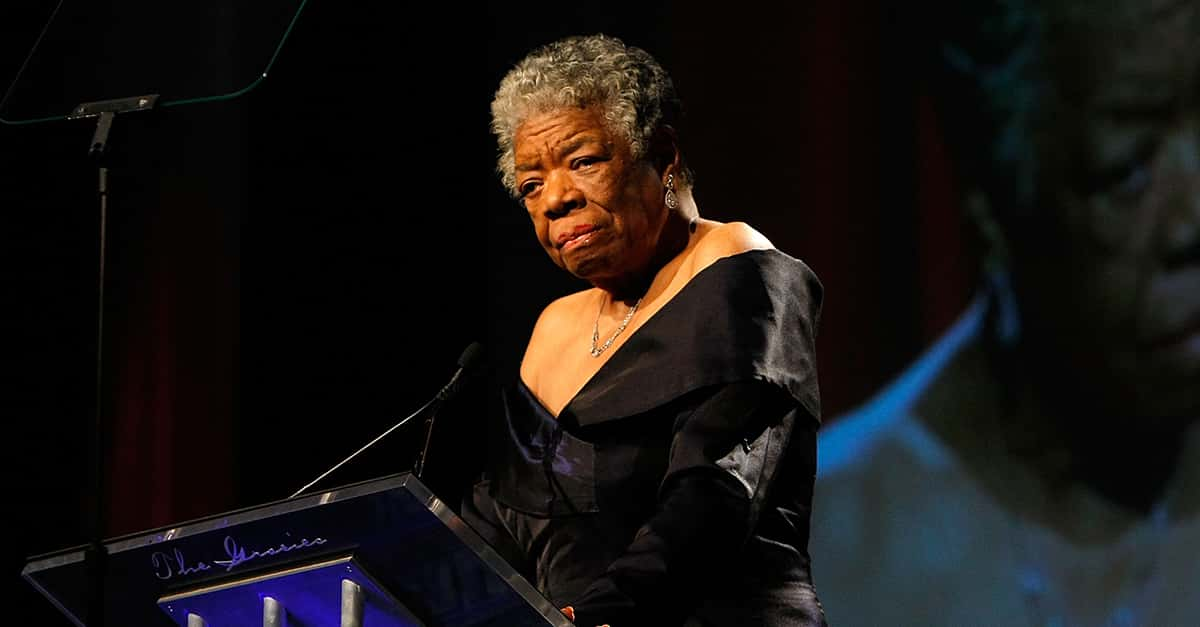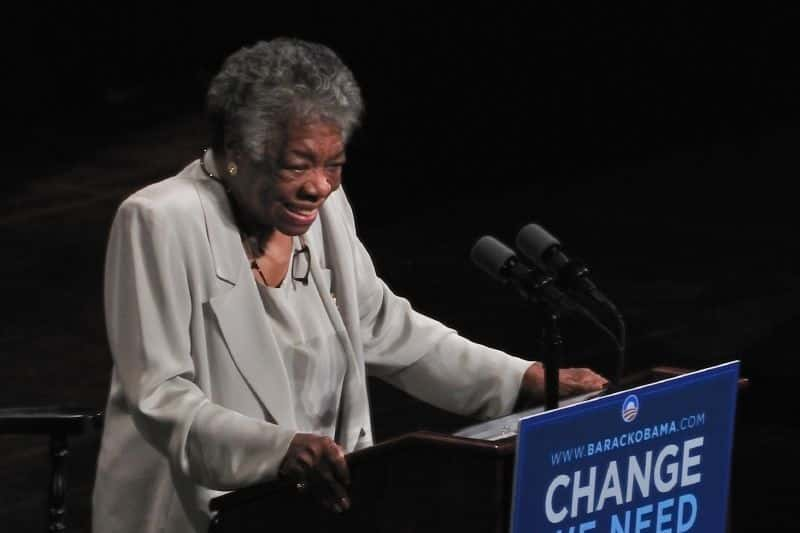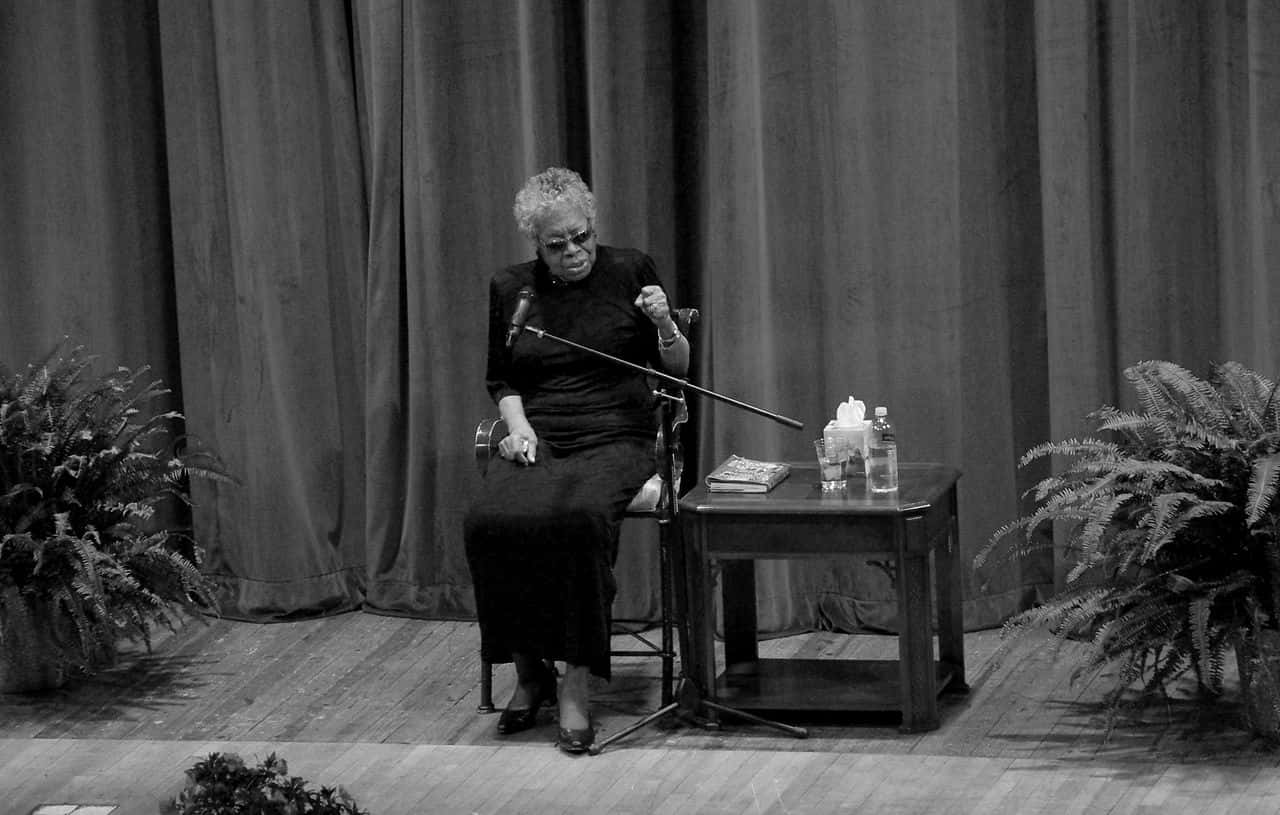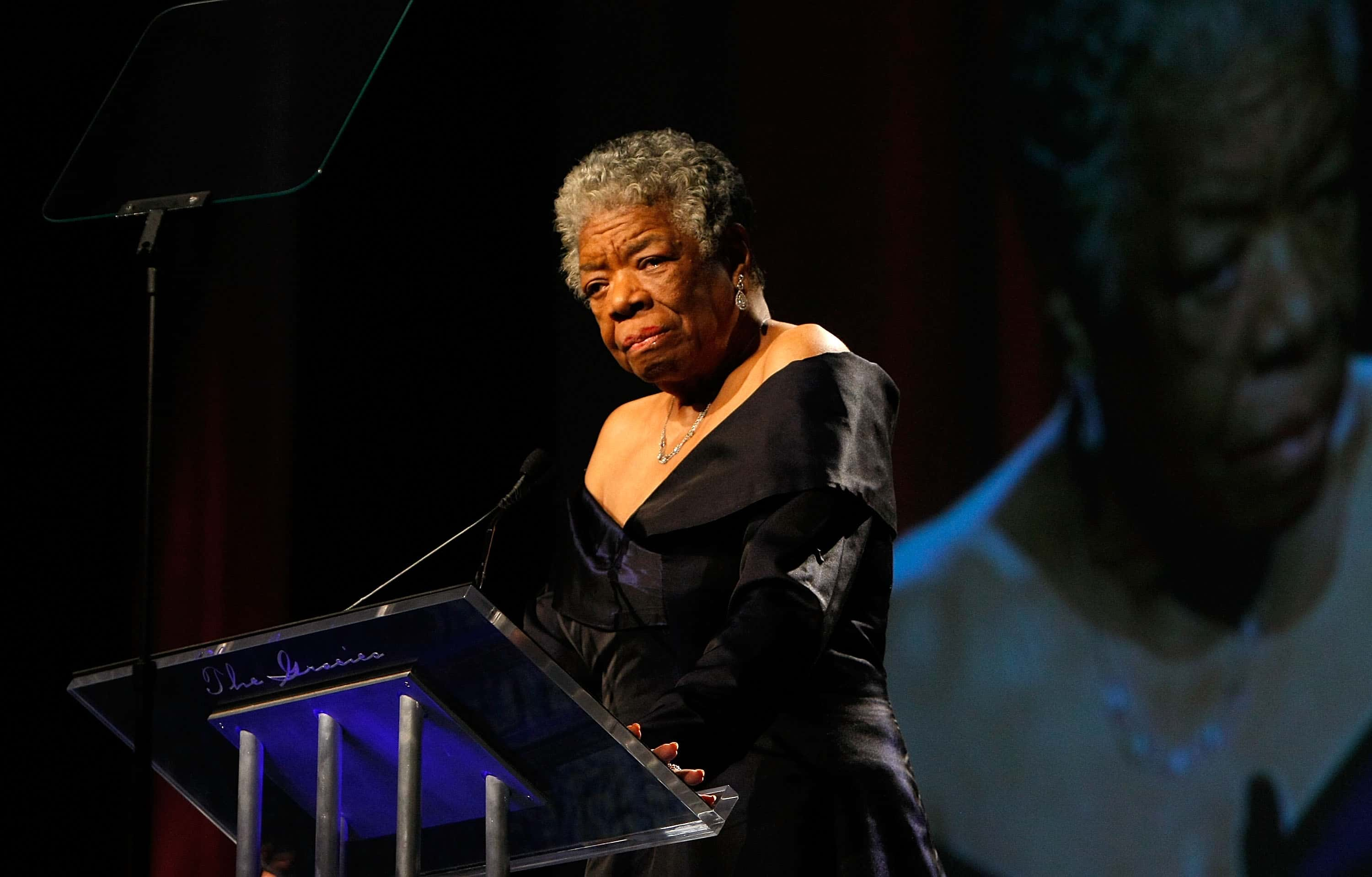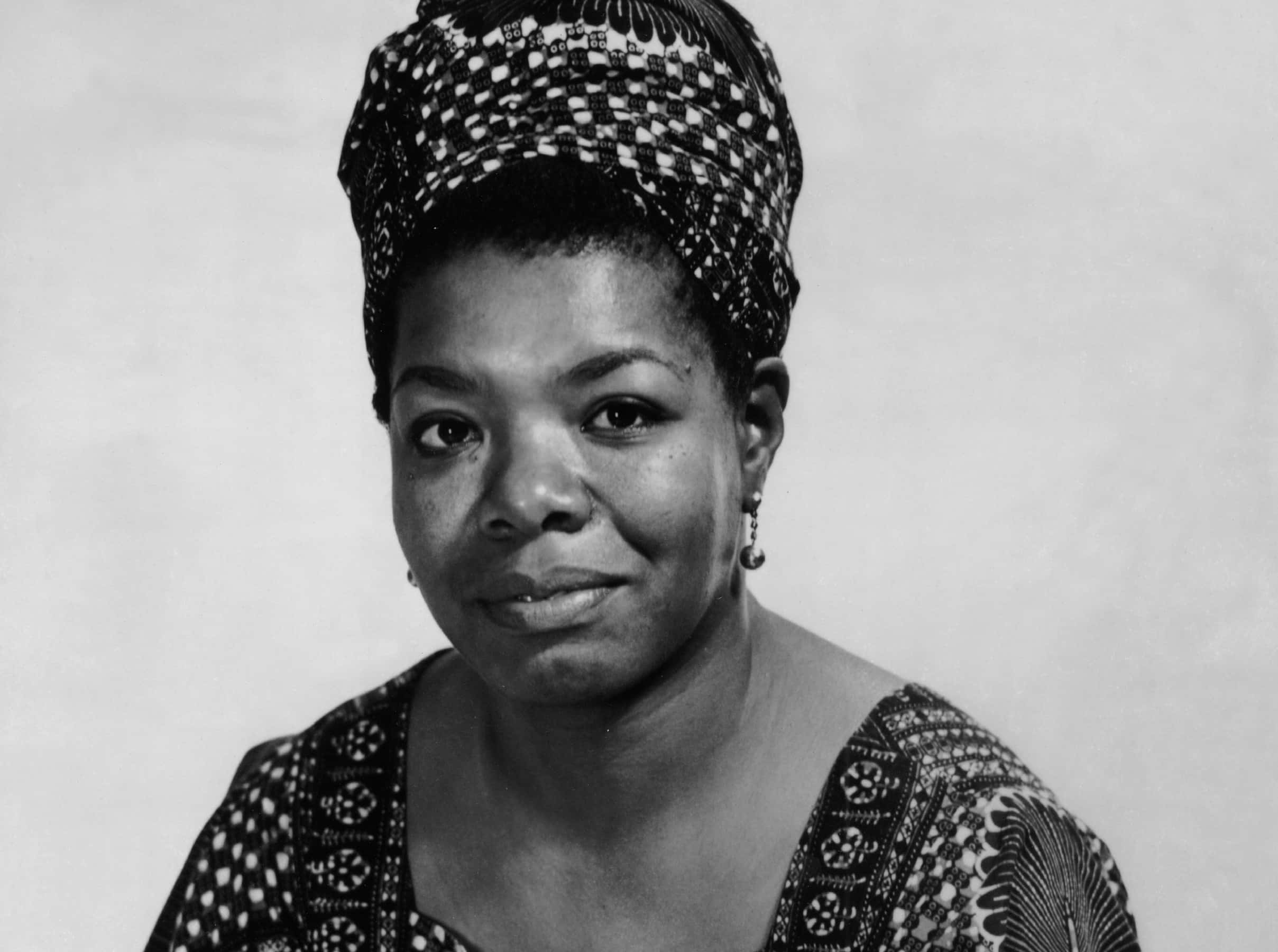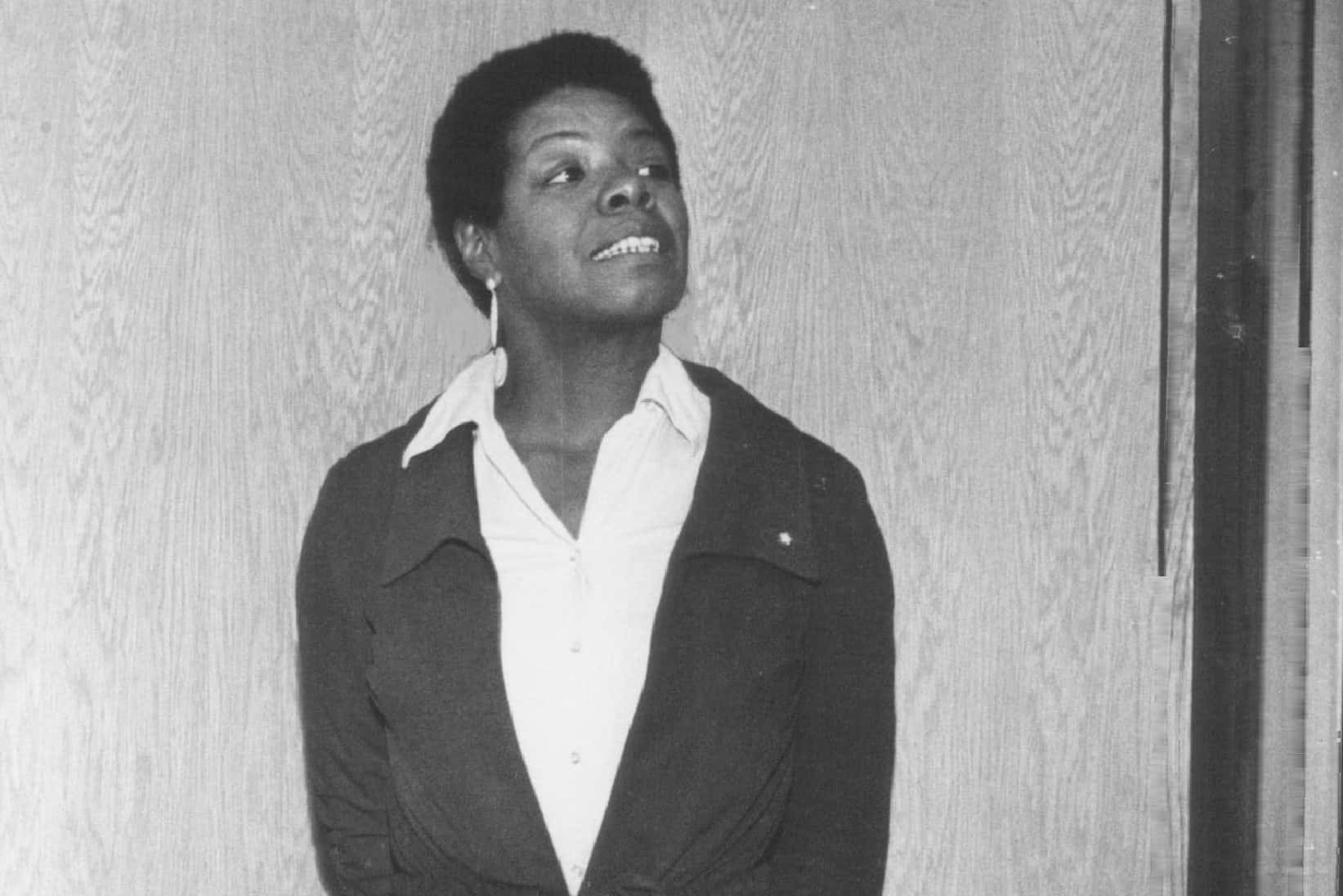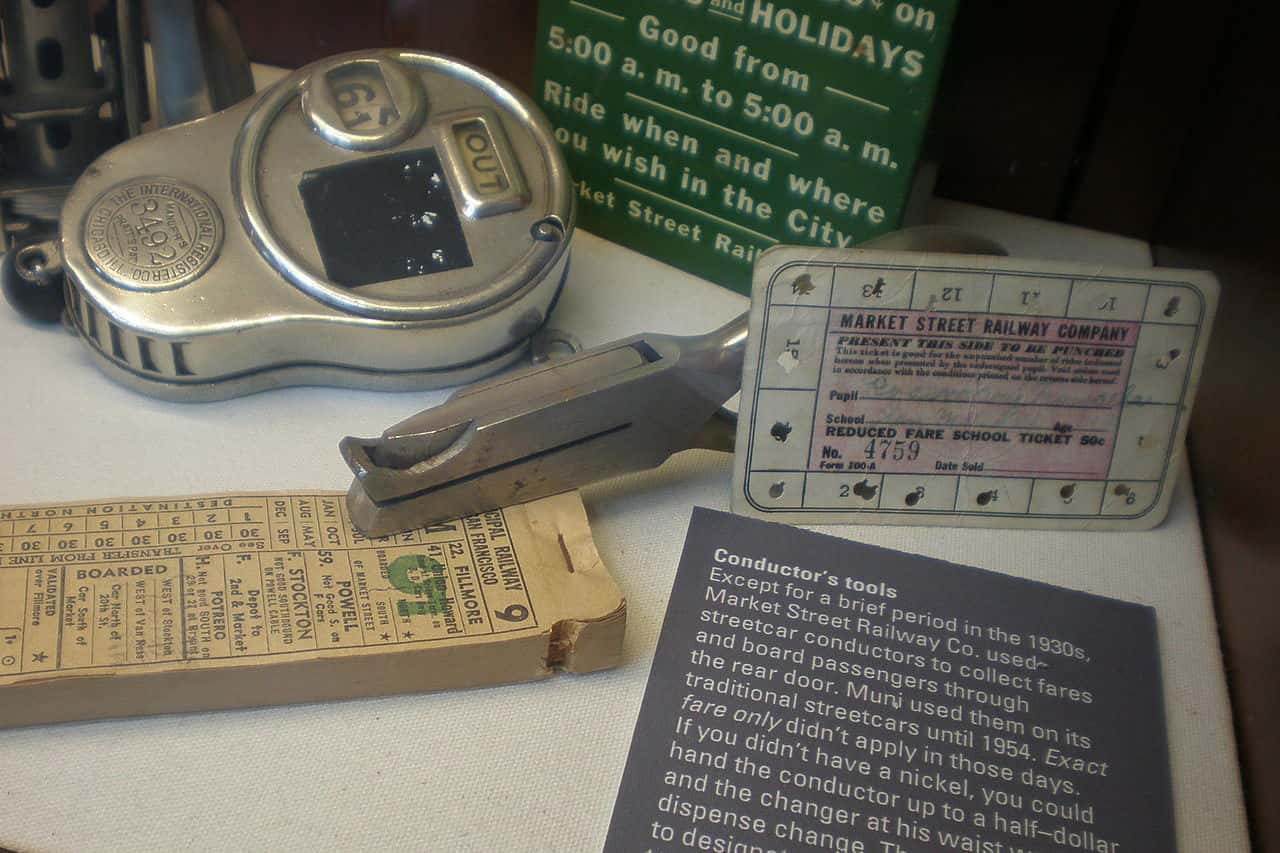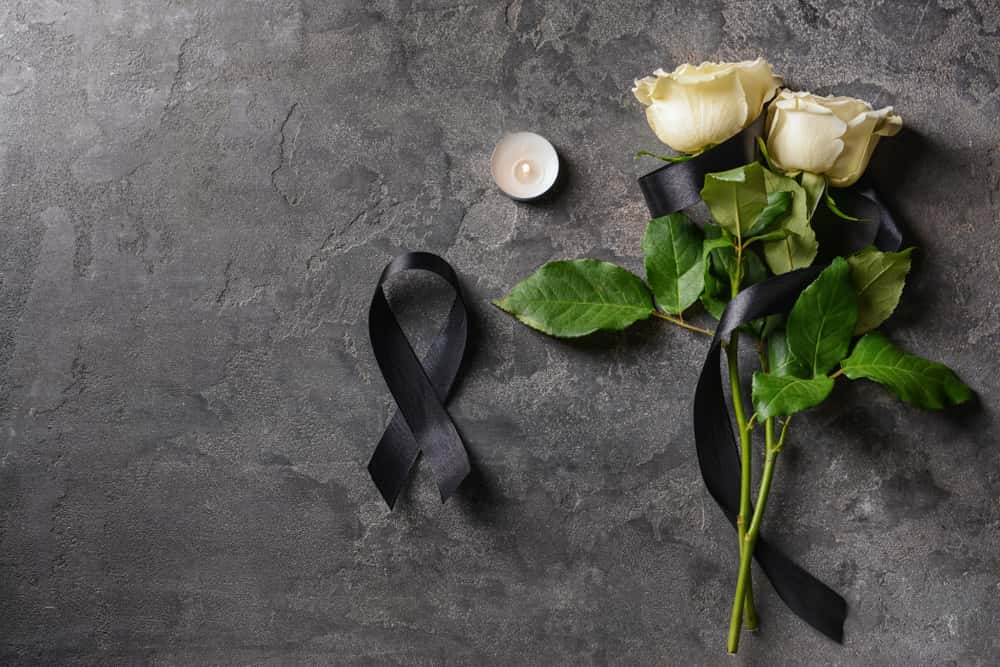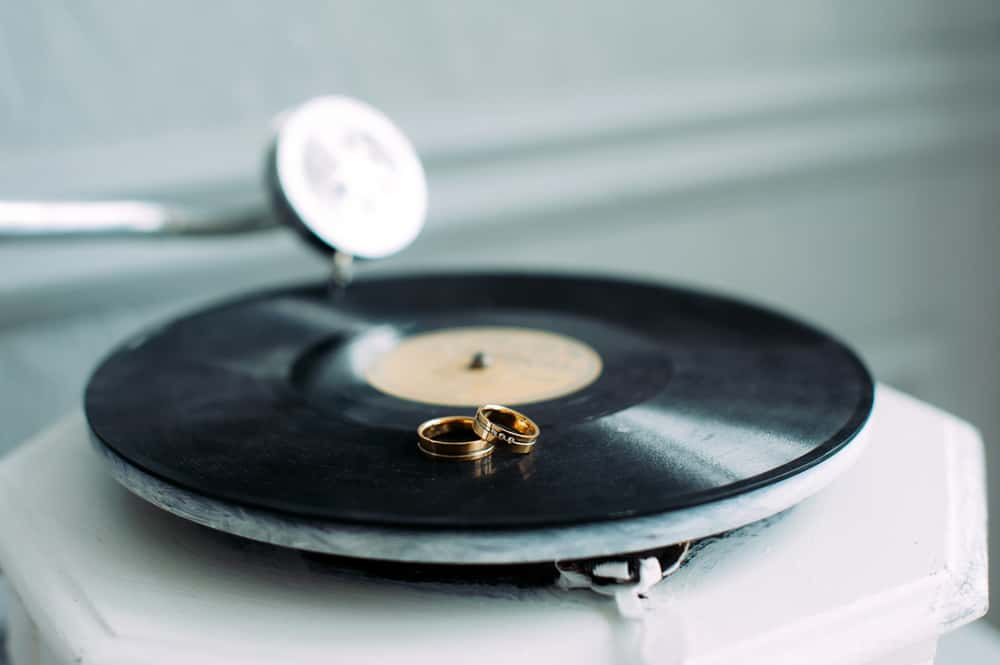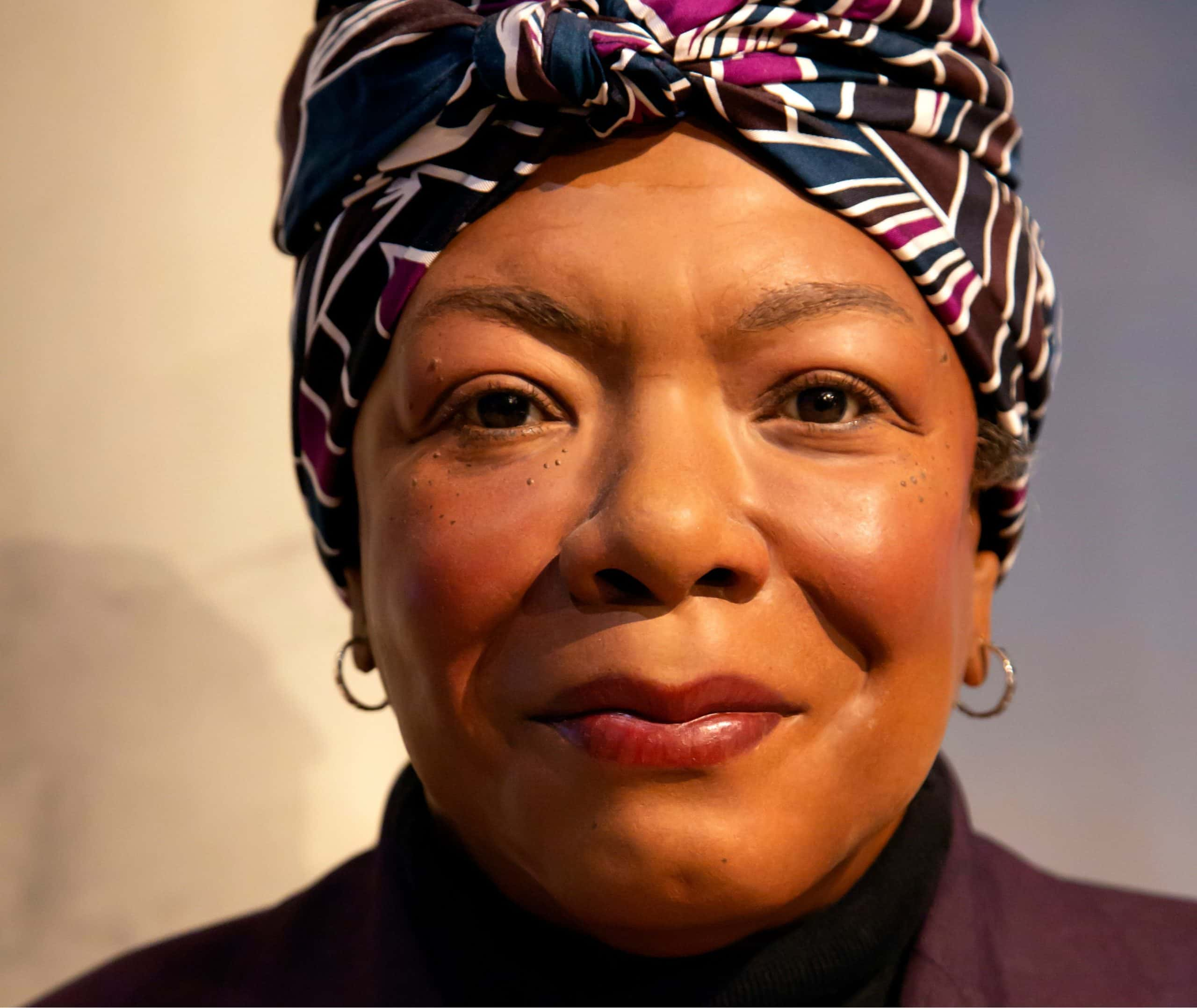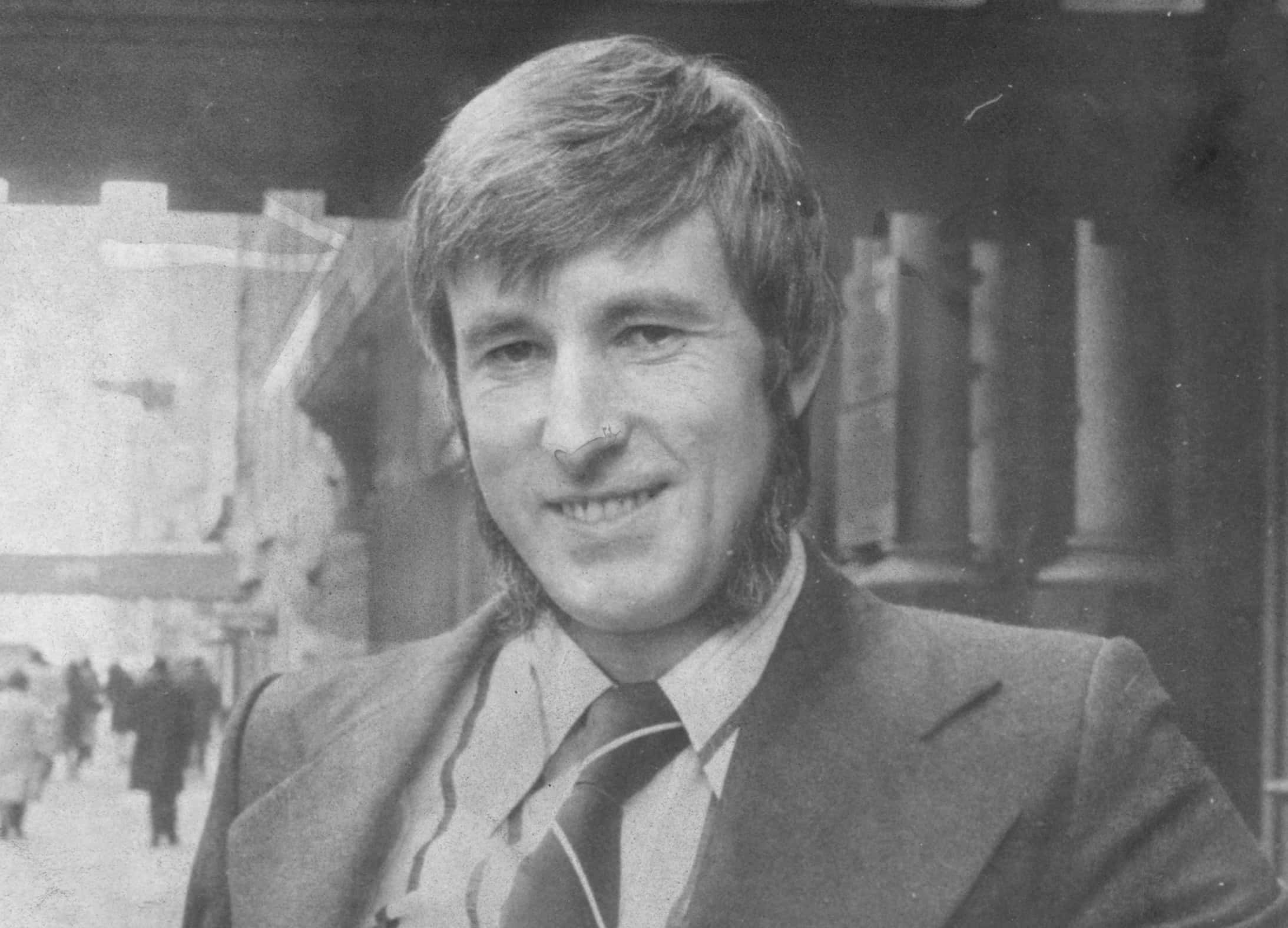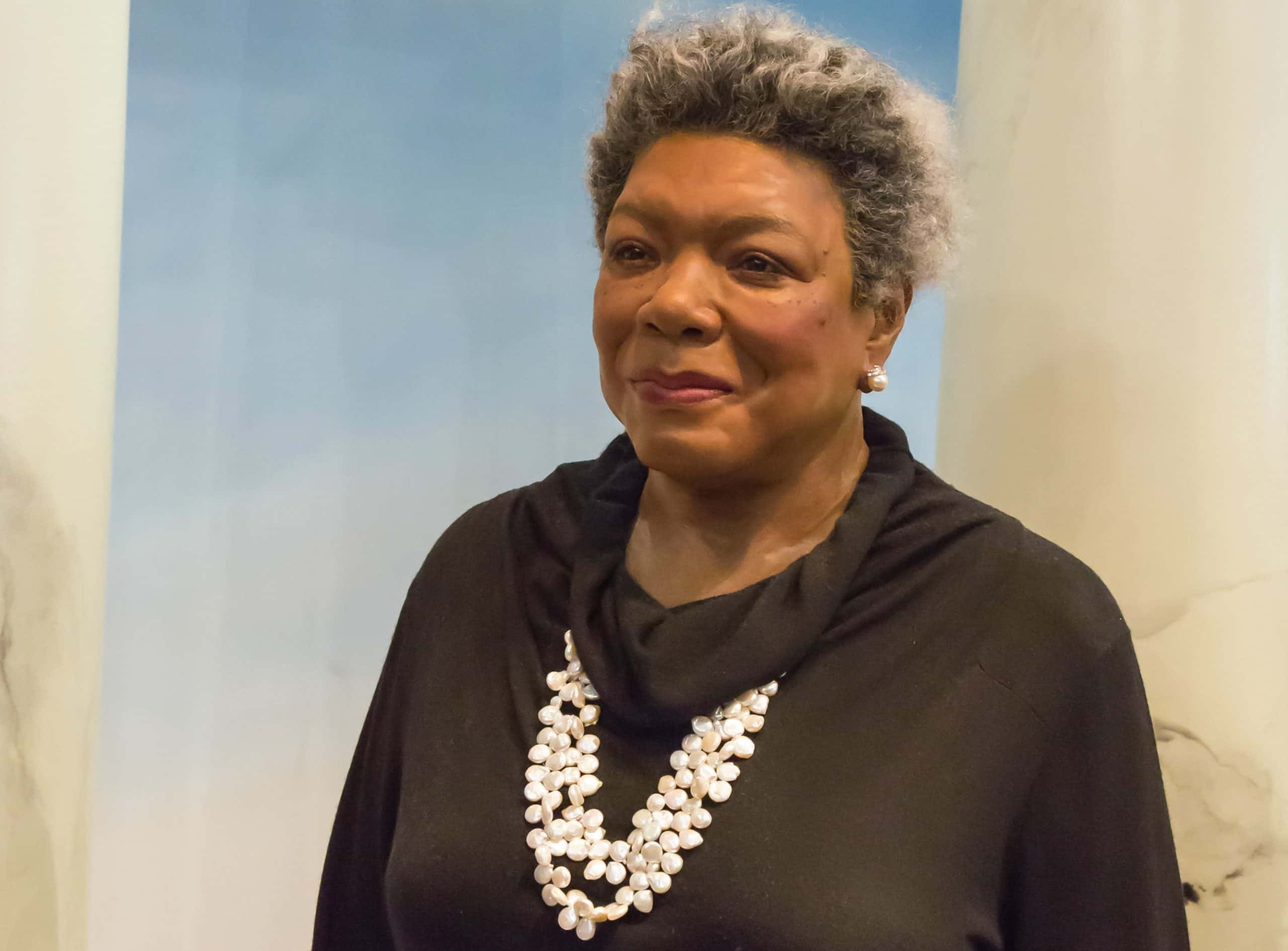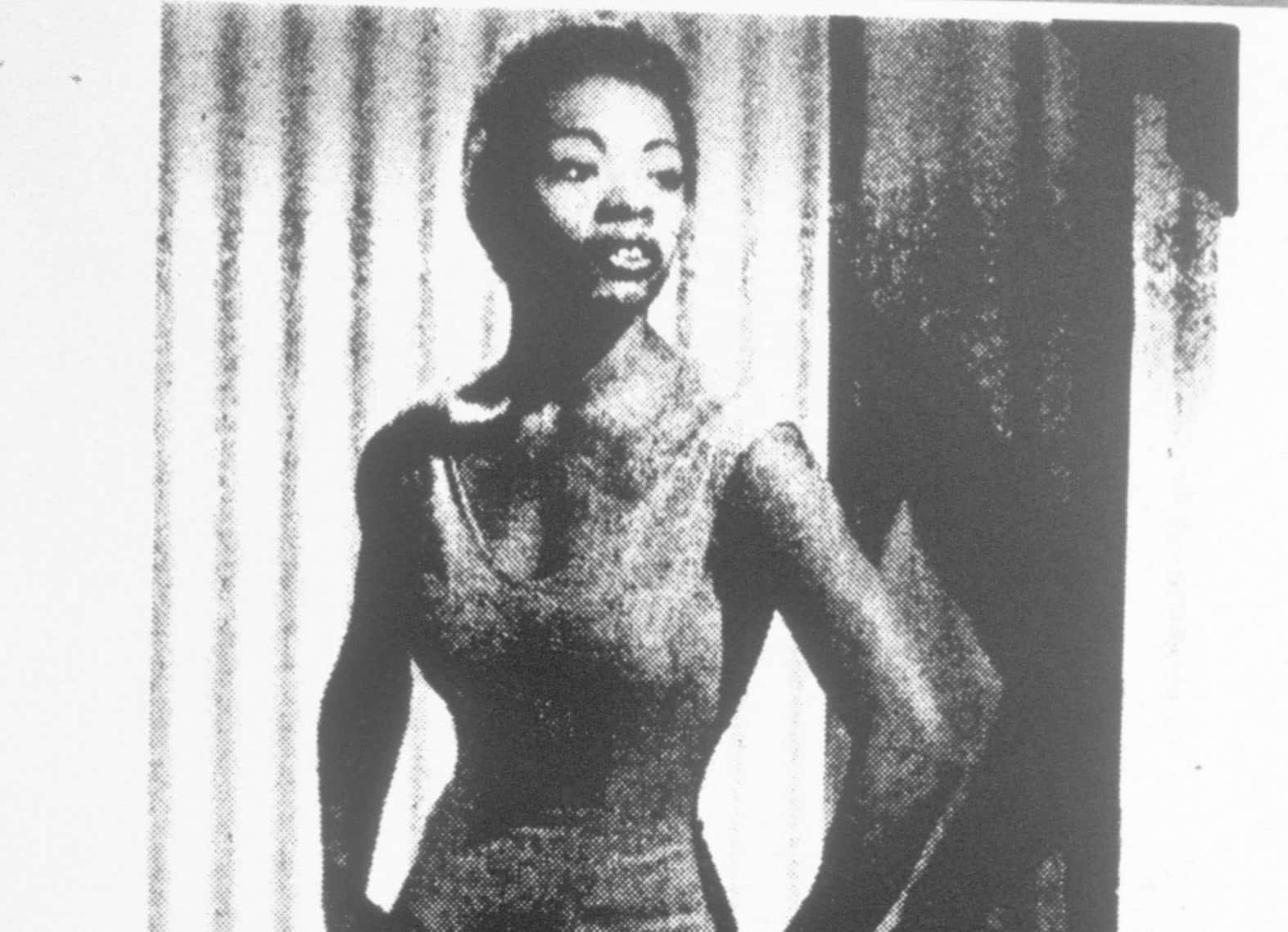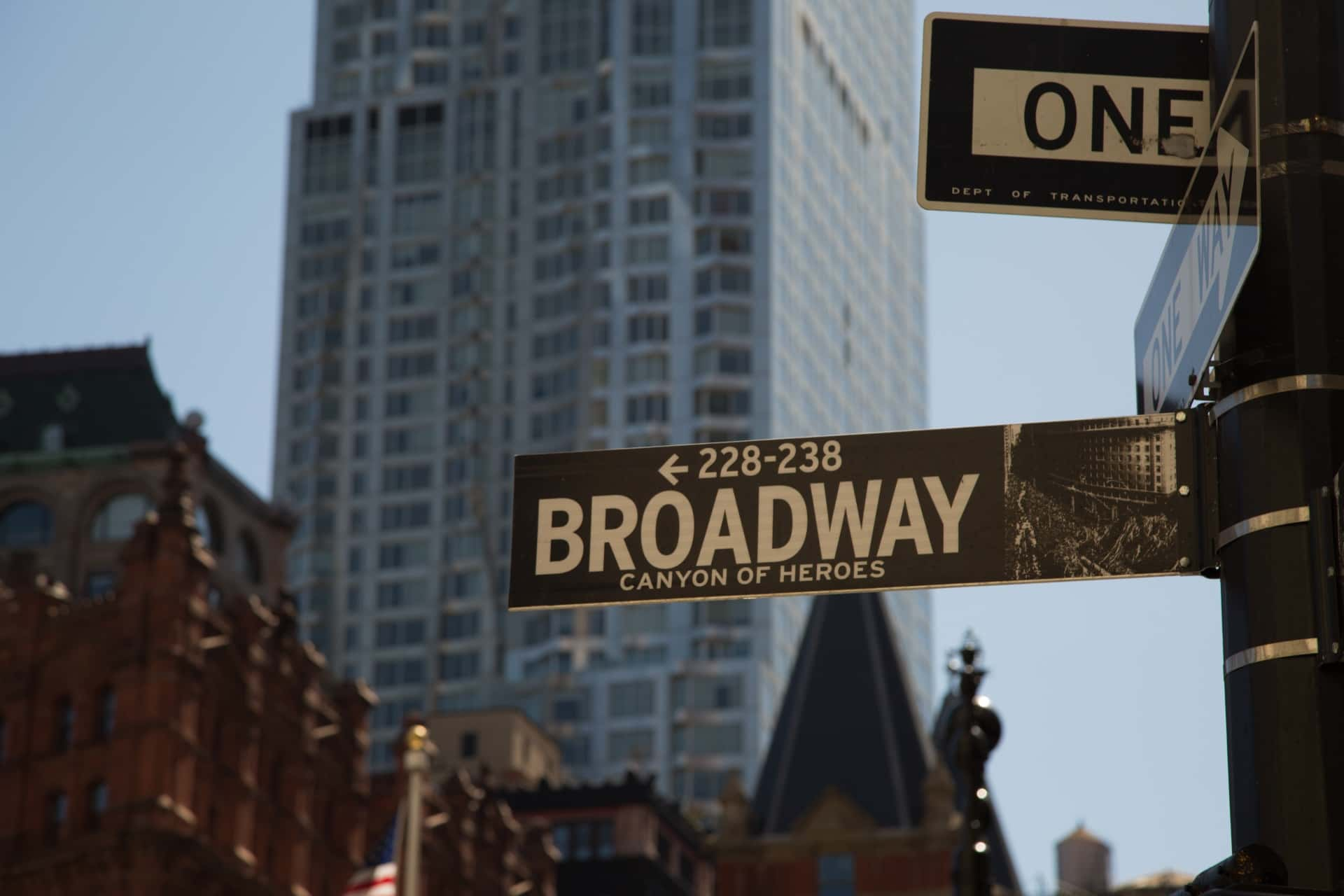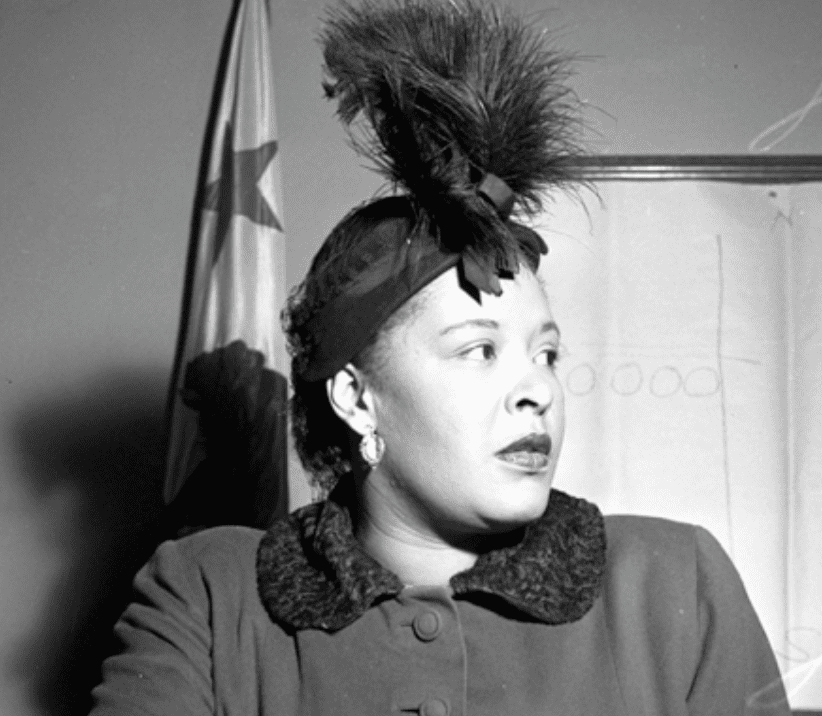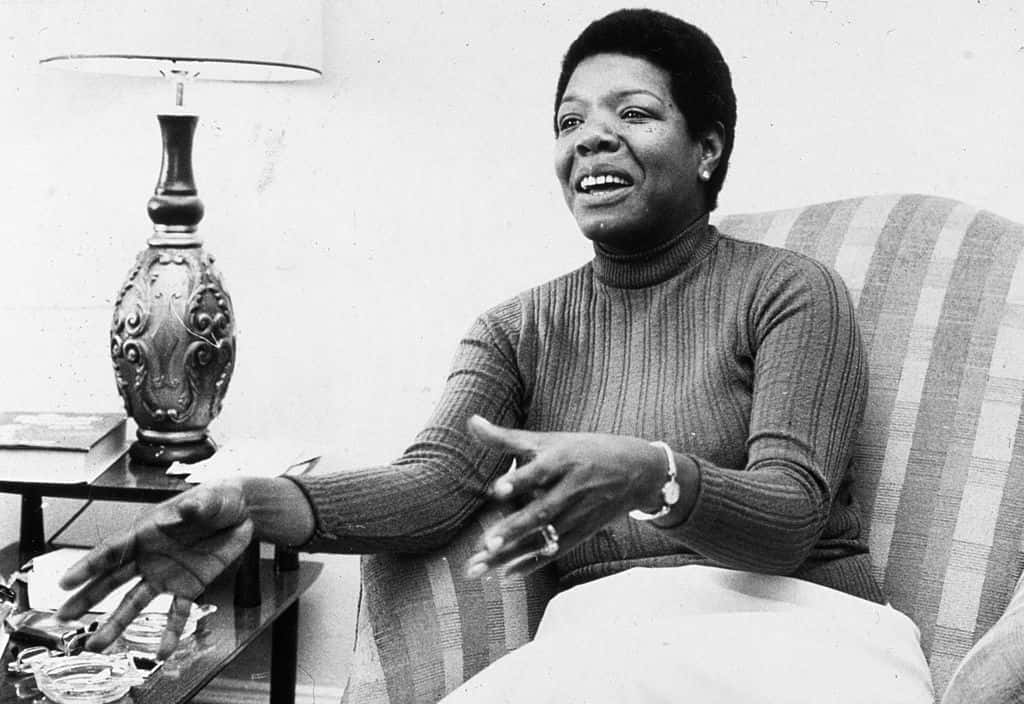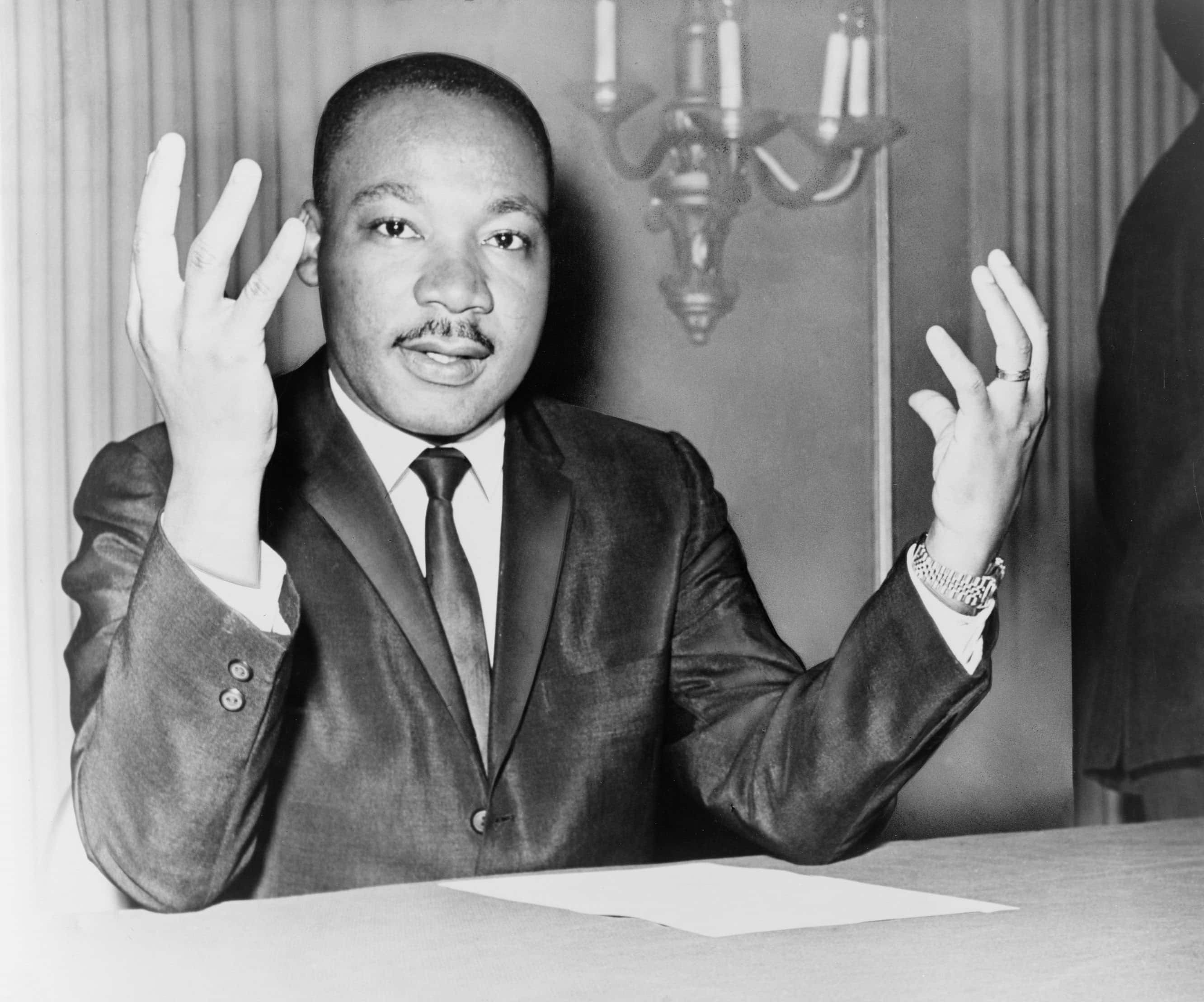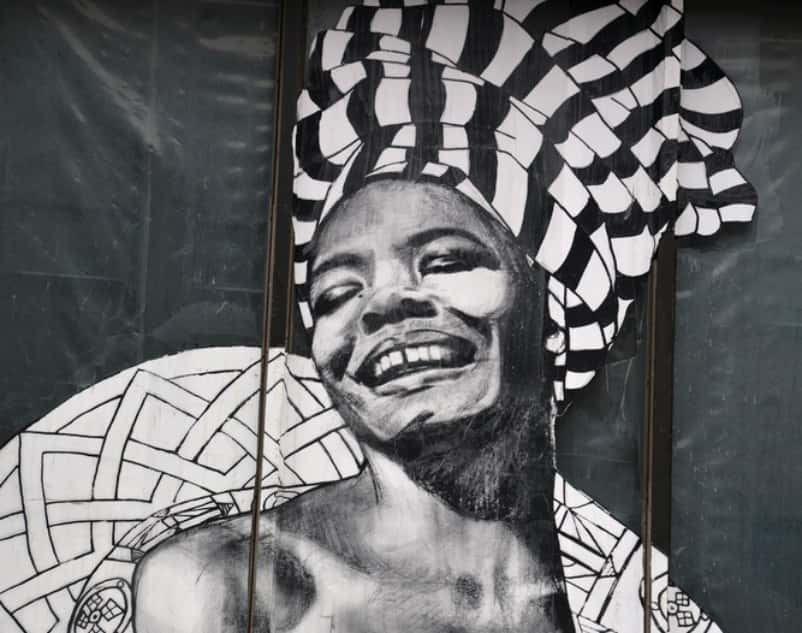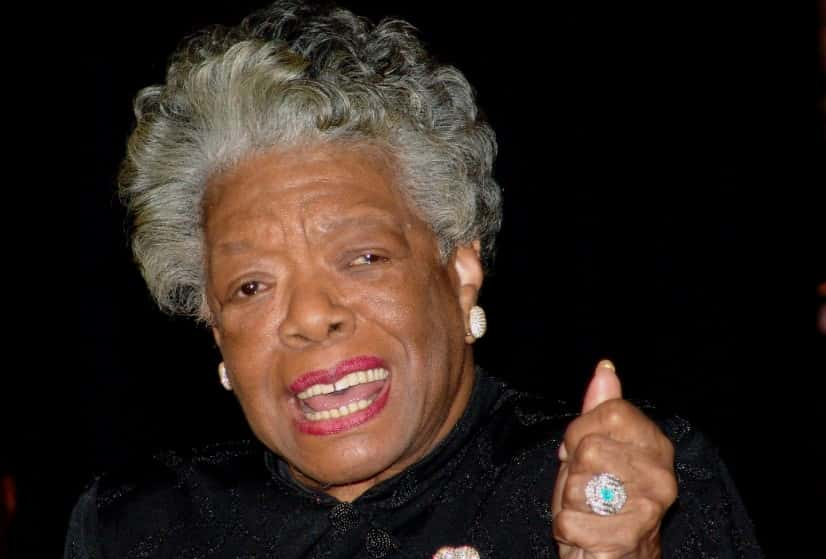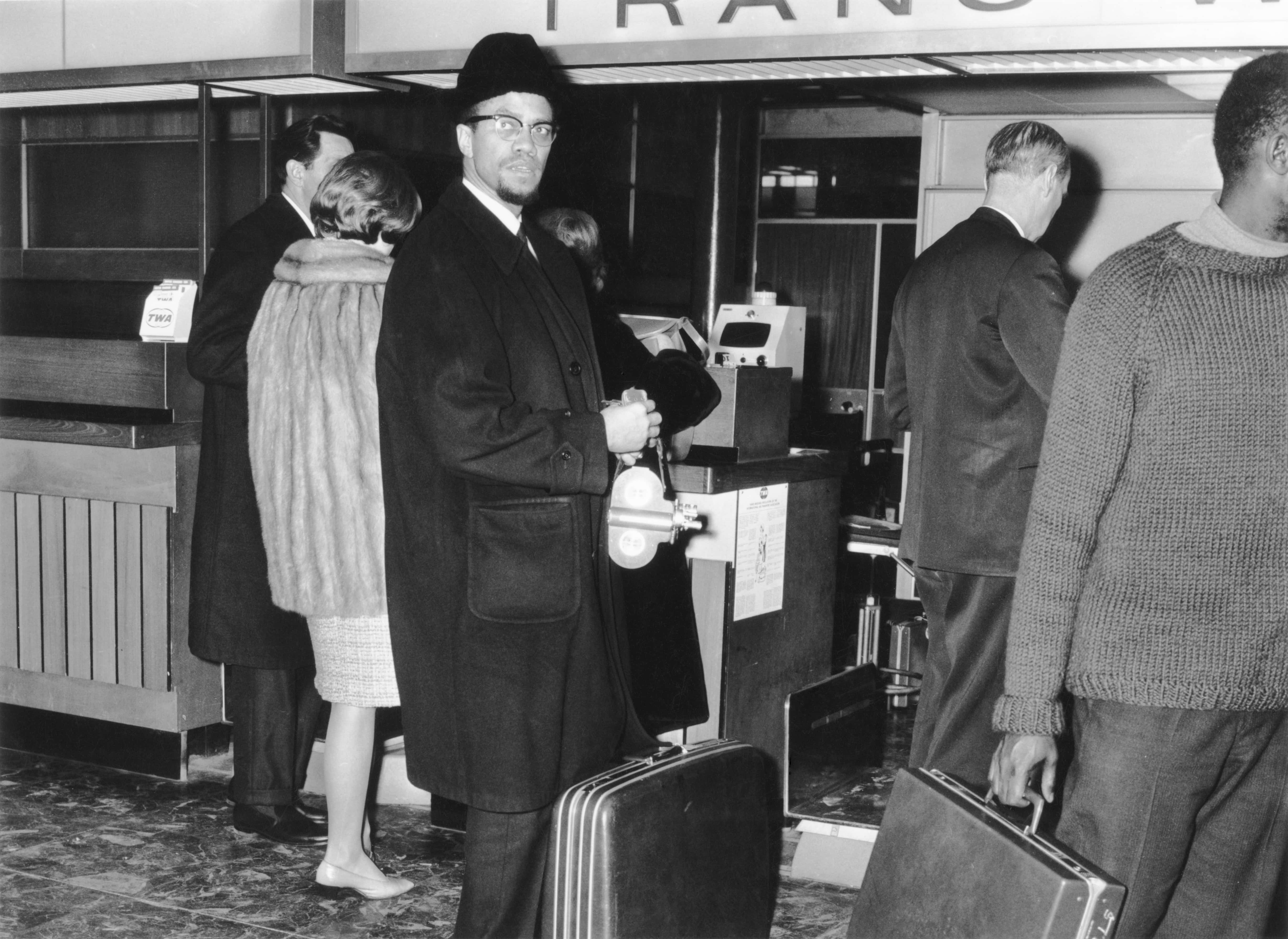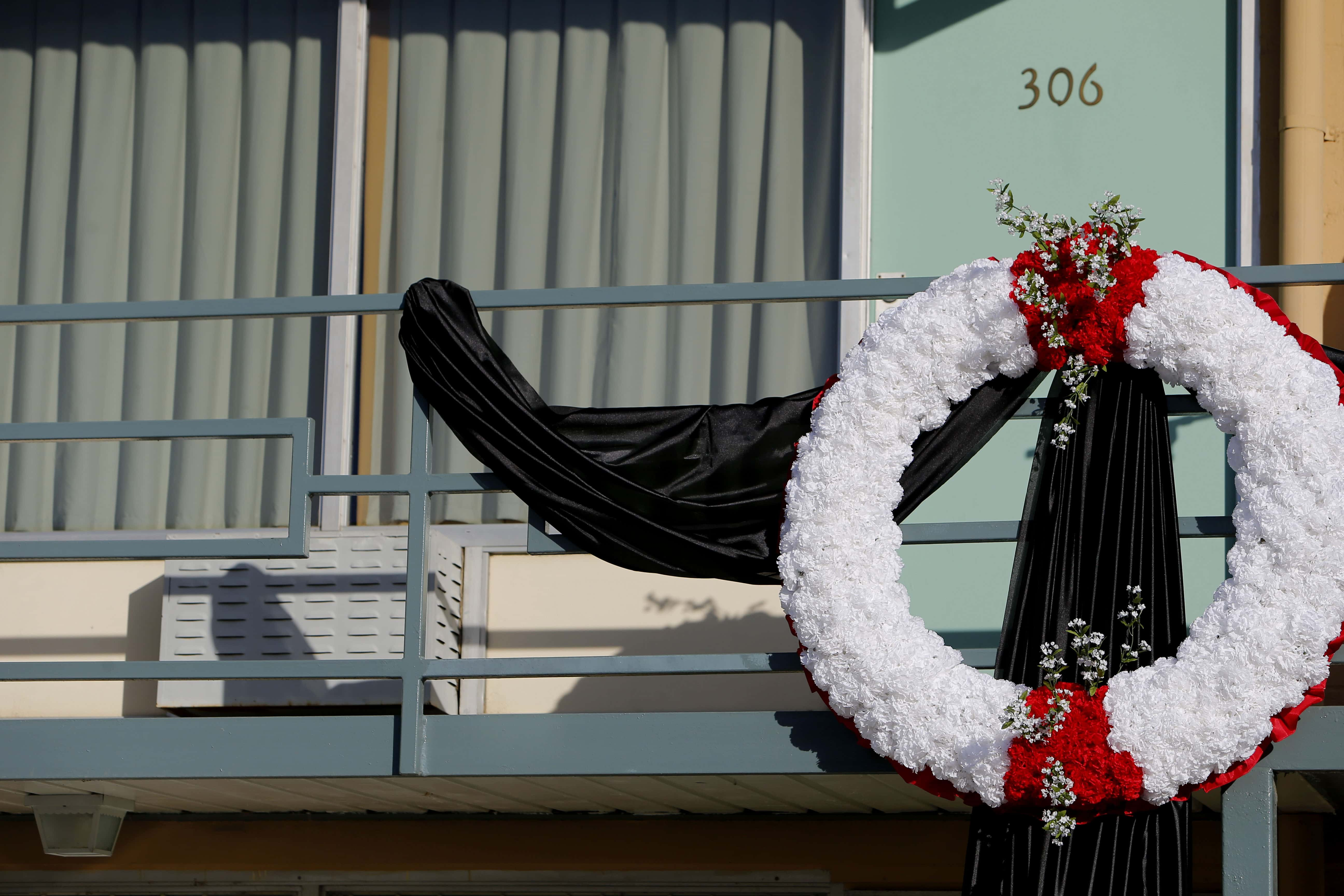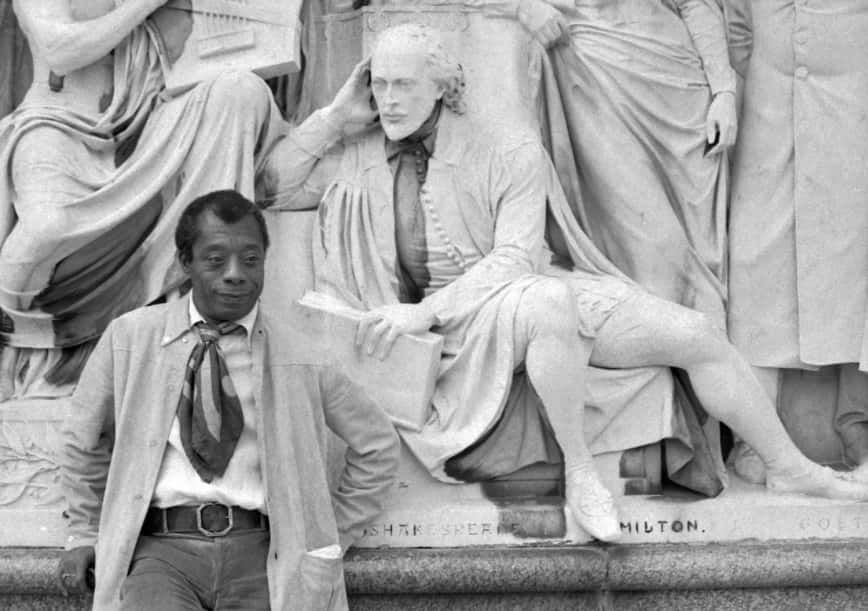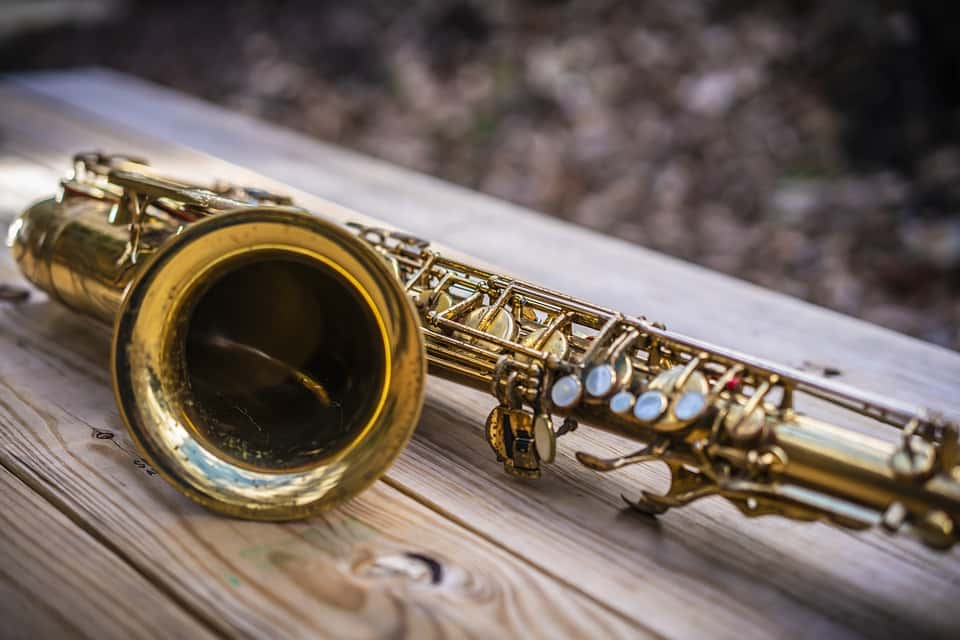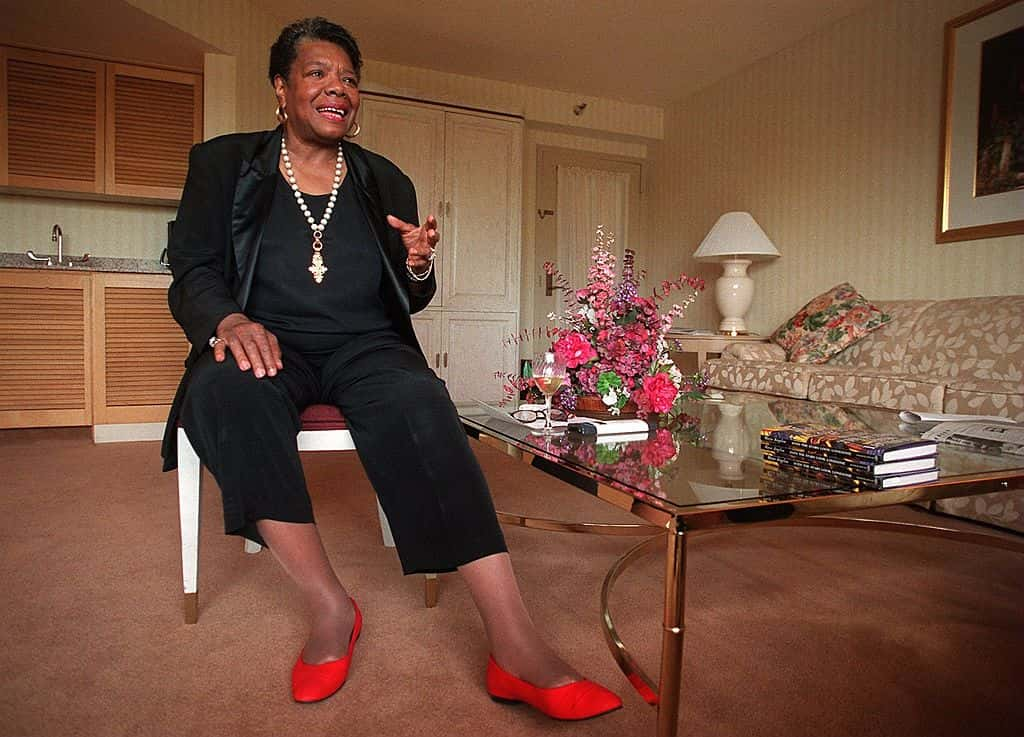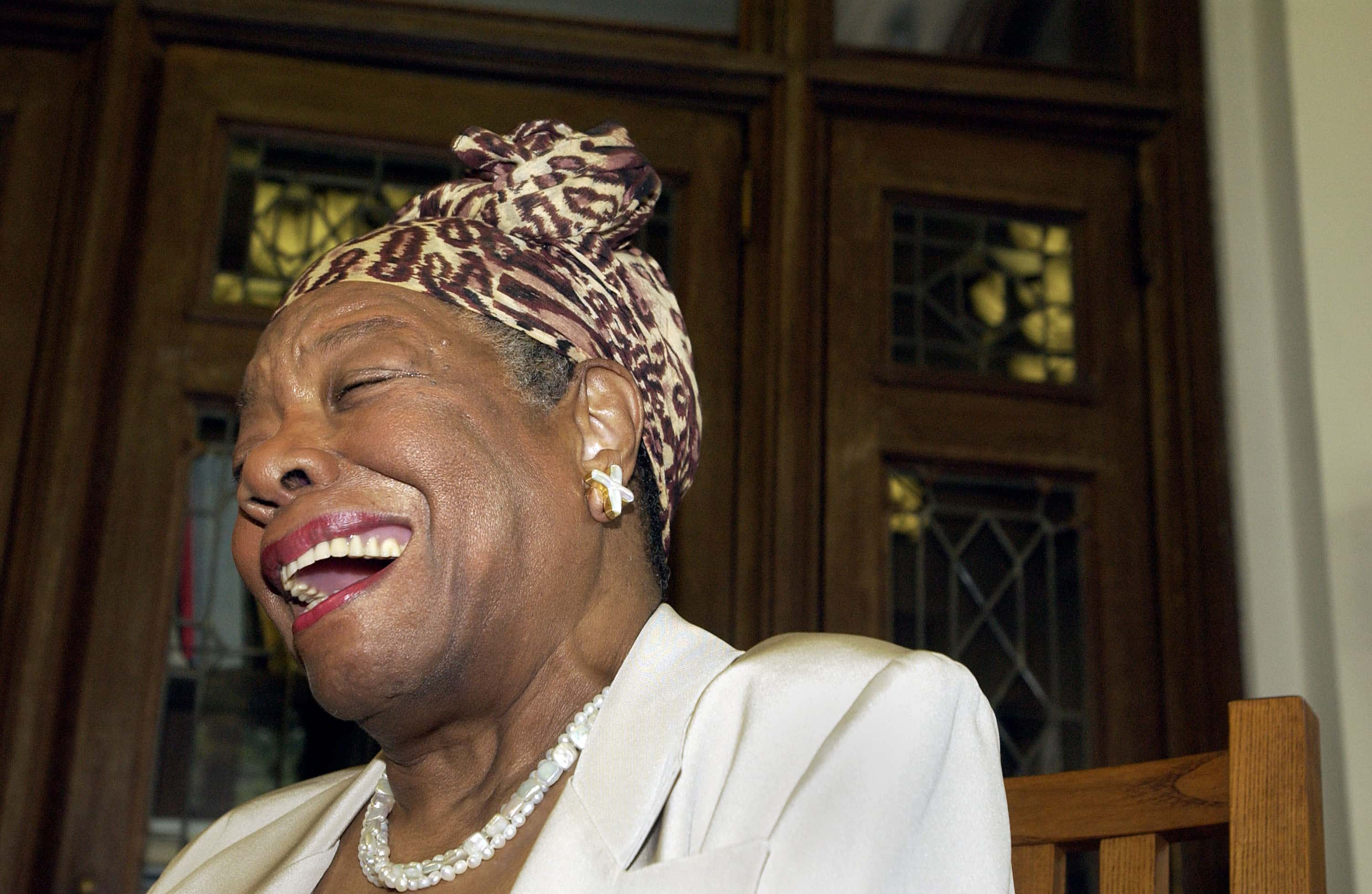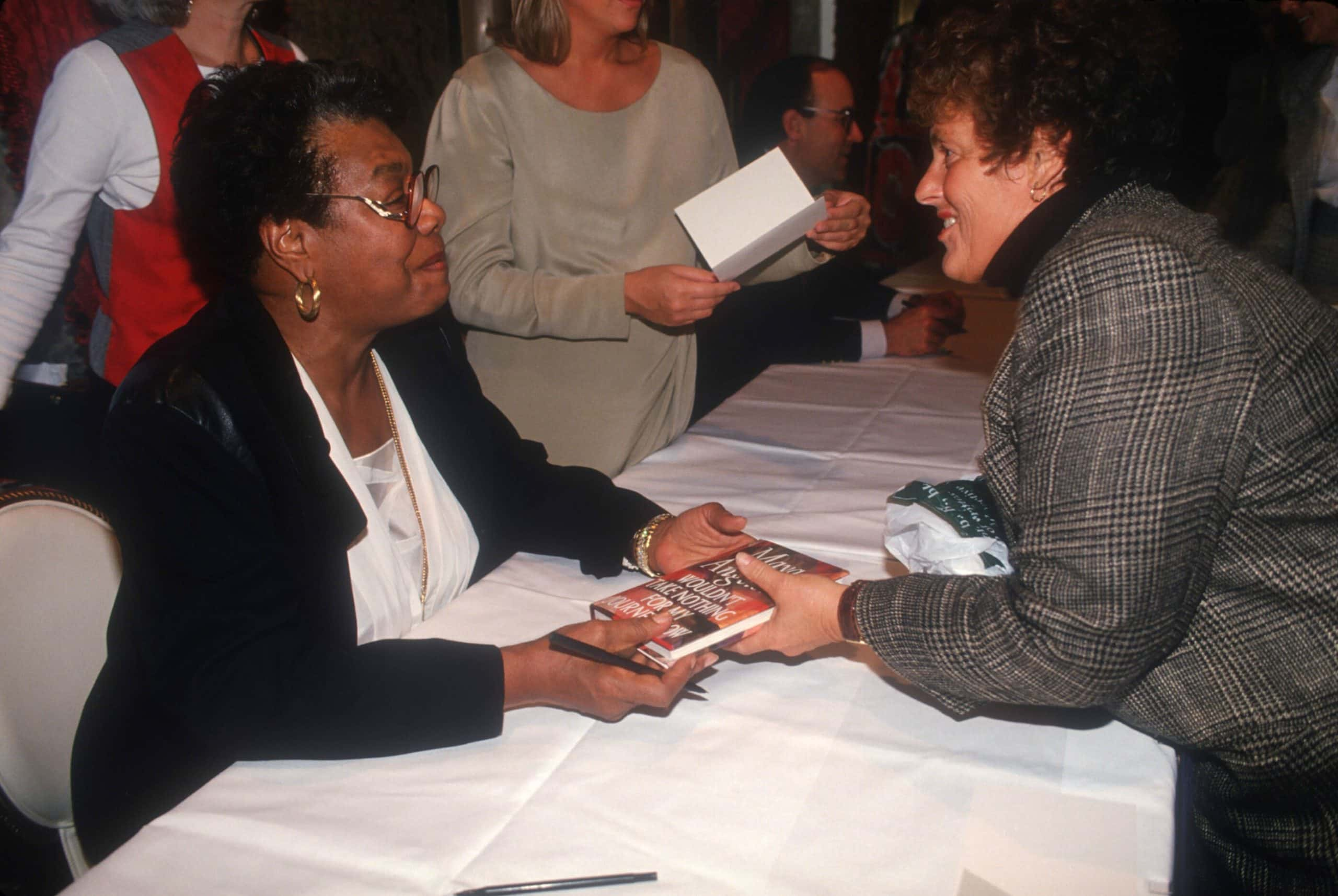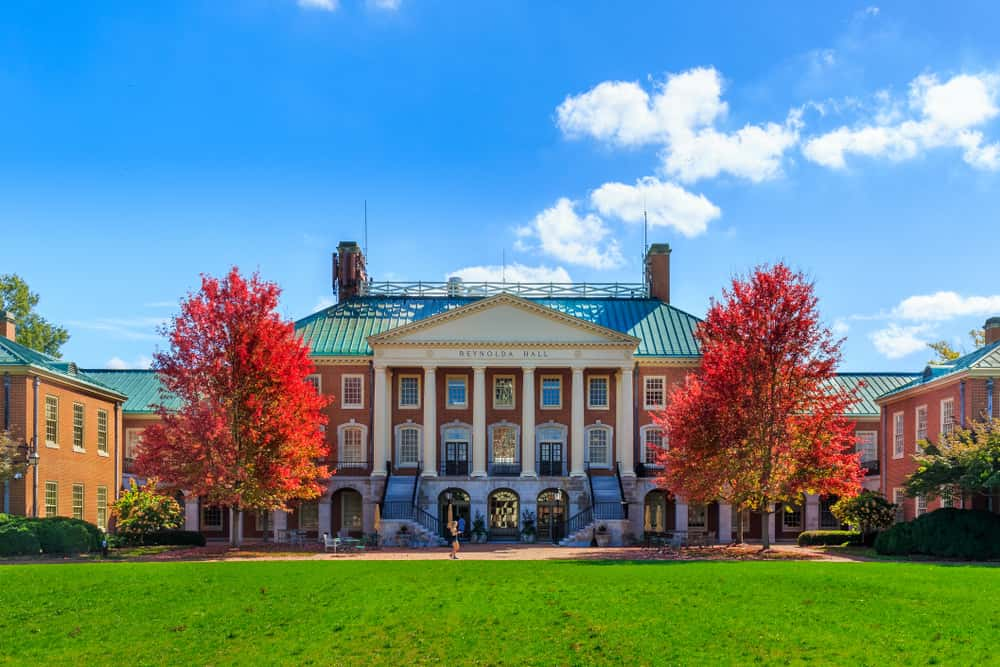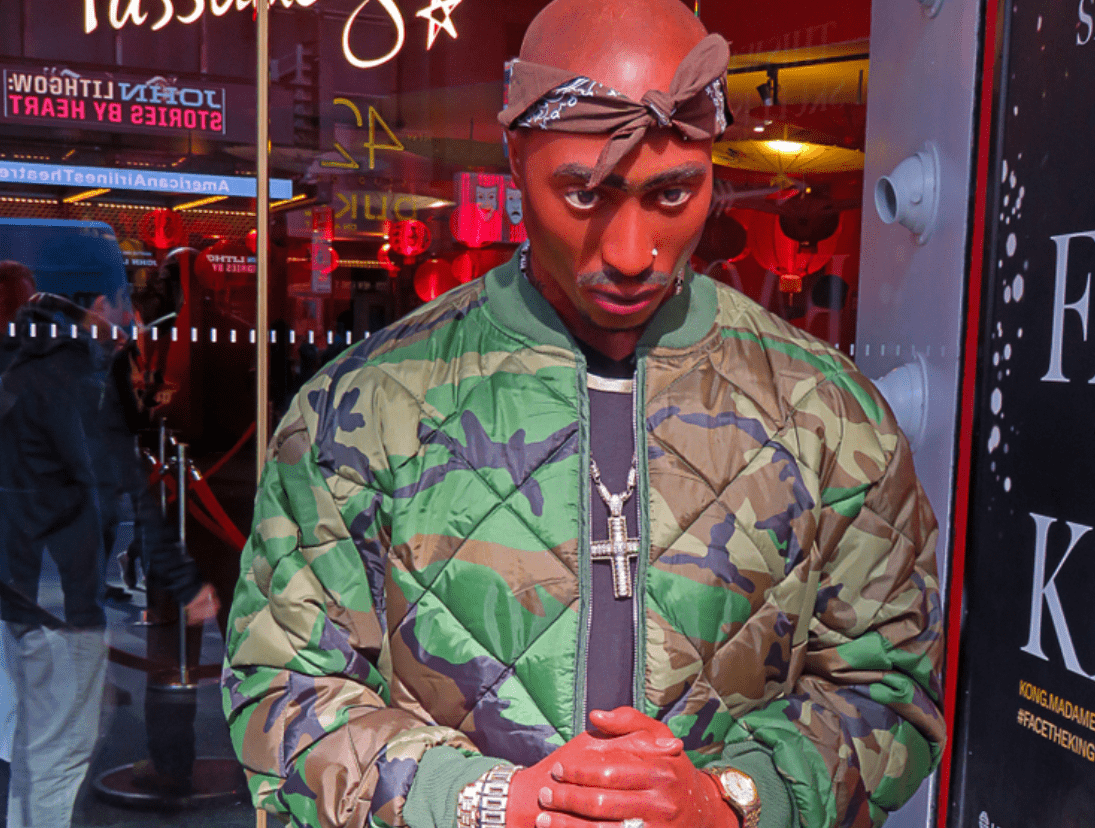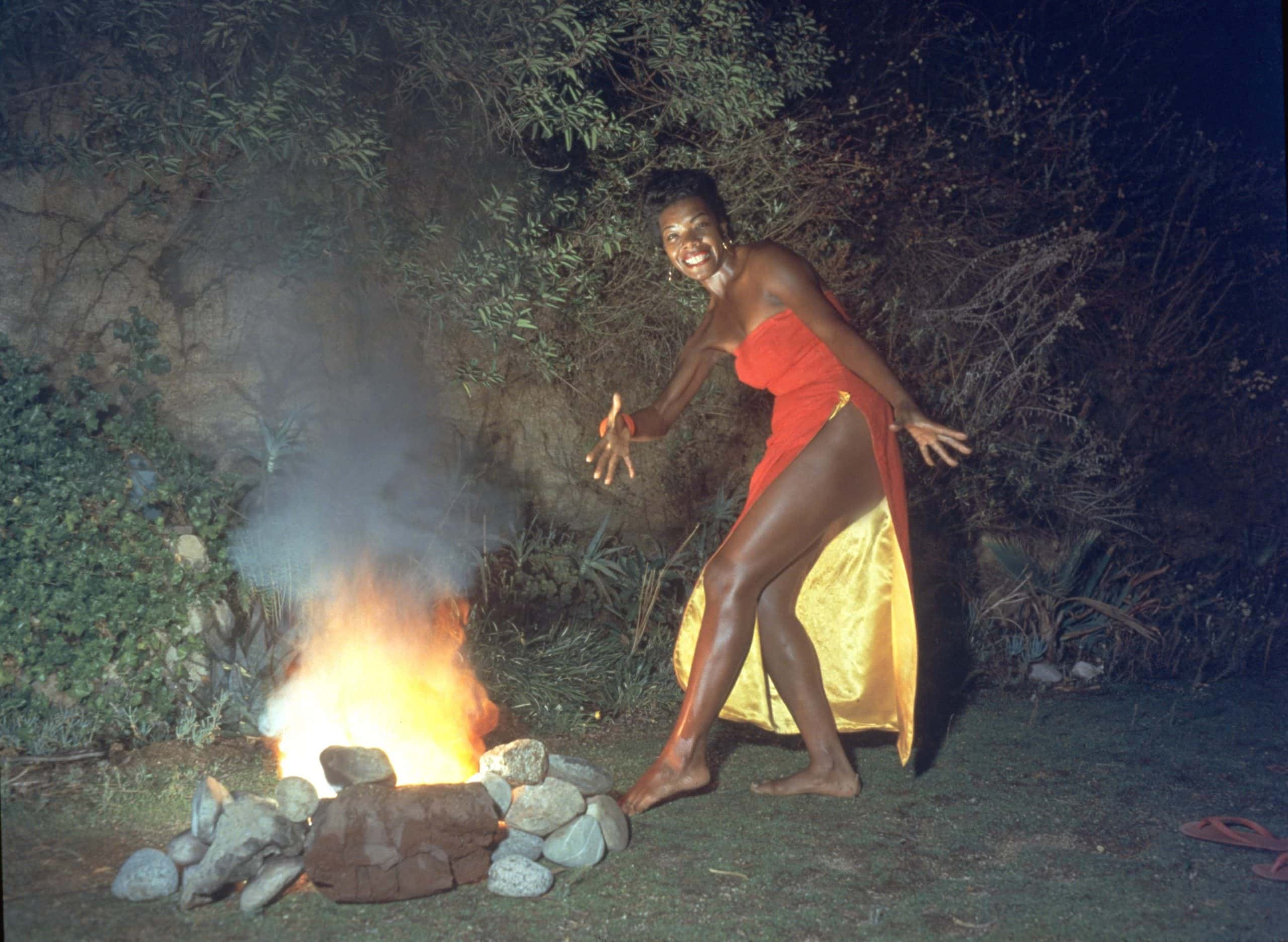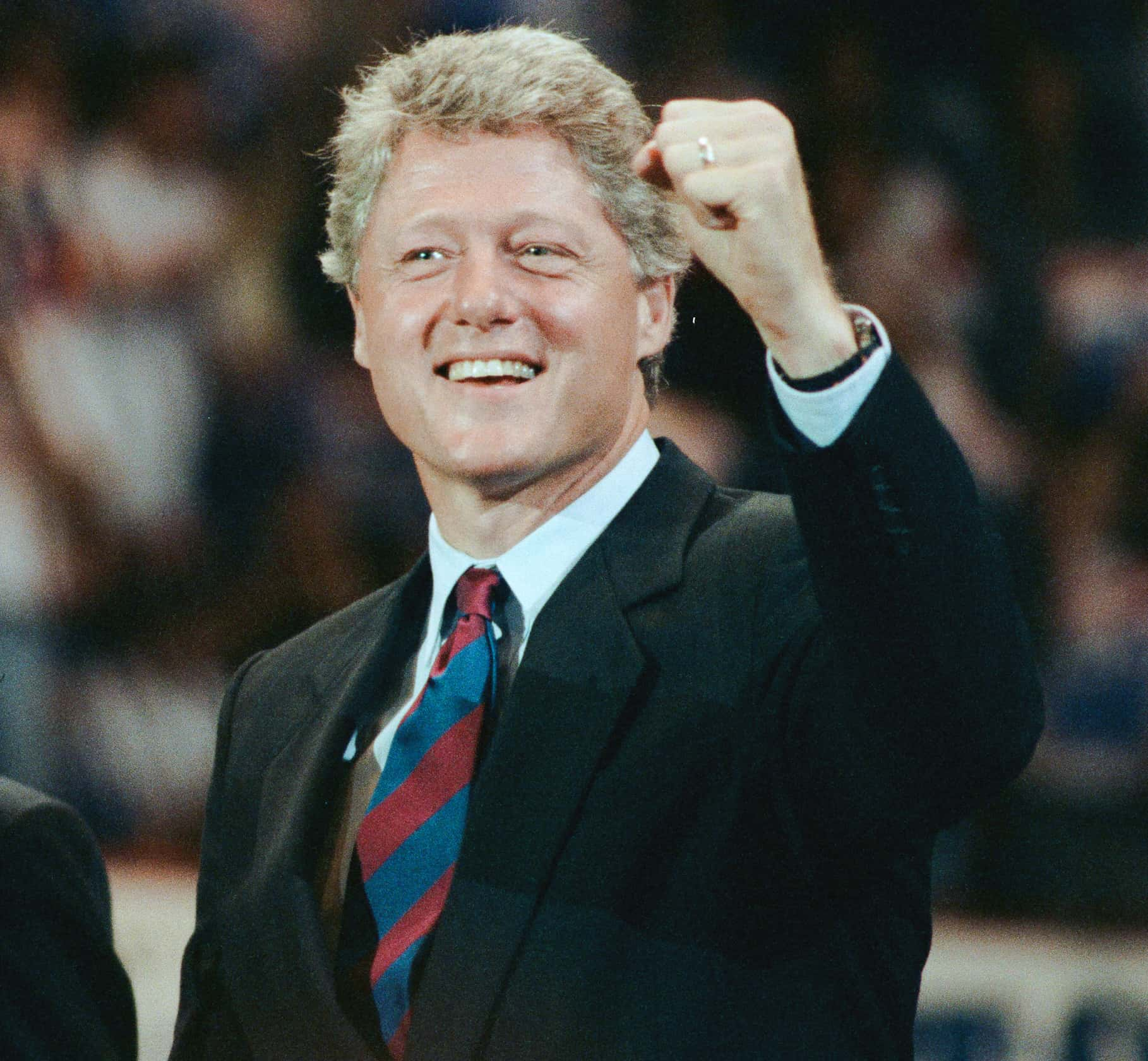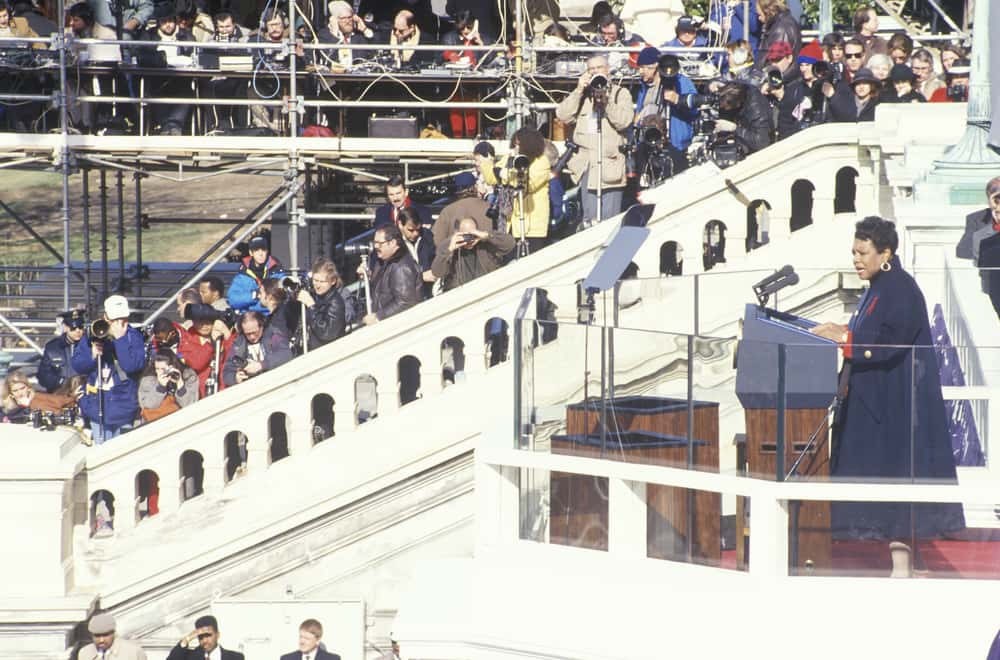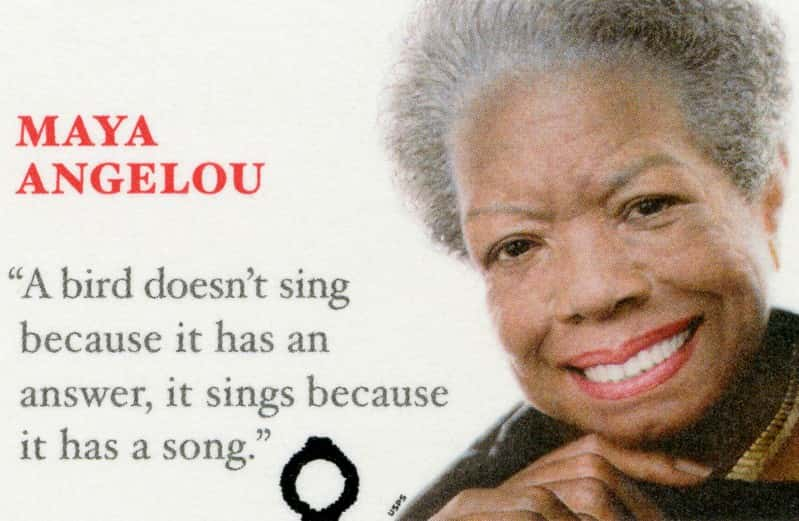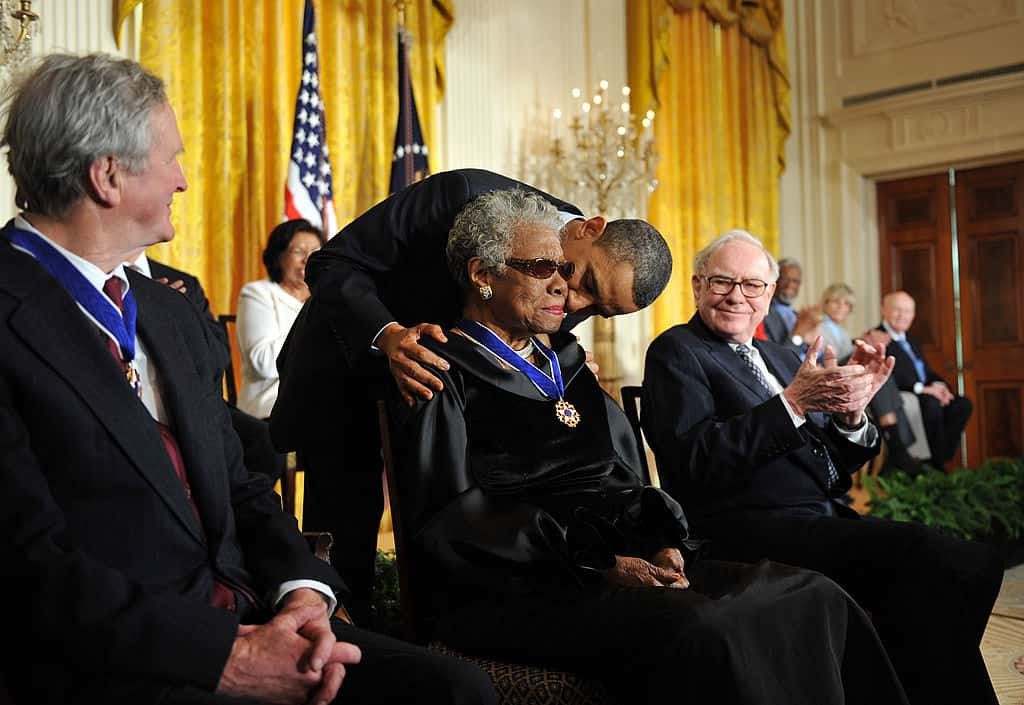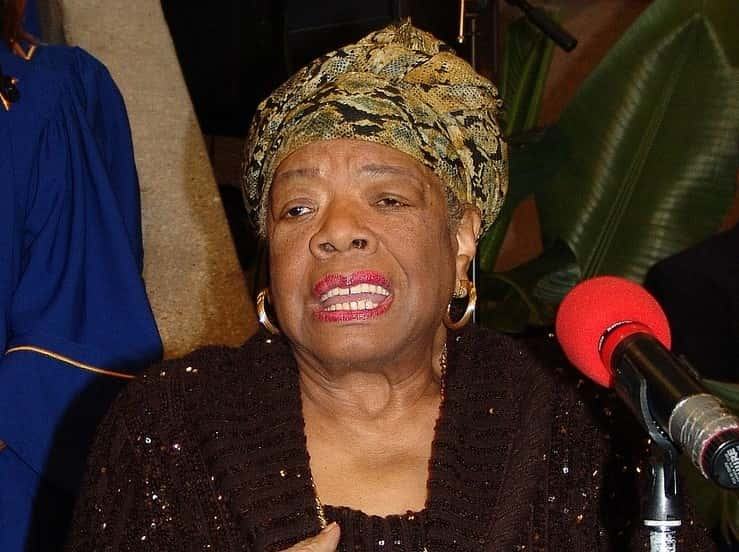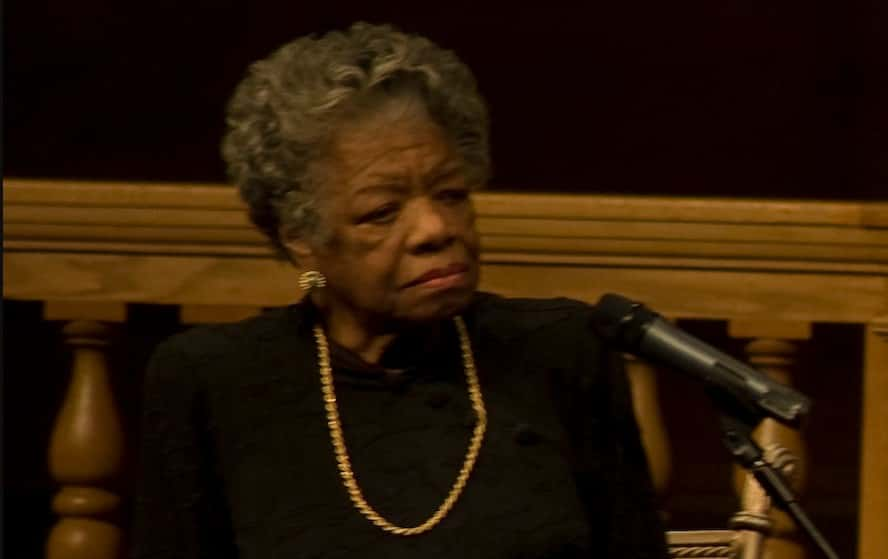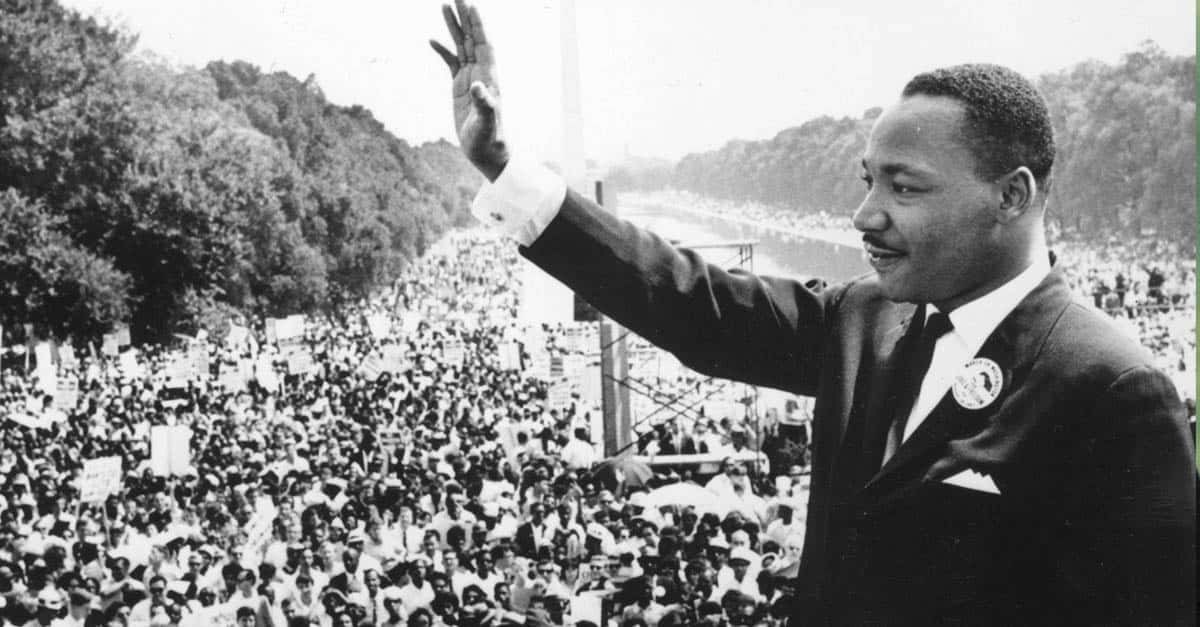She considered herself a poet first and foremost, and her most popular books were her memoirs. Still, Maya Angelou did her best to experience every facet of creative life. In her long career, she tried her hand at everything—from cooking to calypso dancing to composing. She wrote movies, greeting cards, articles, and art criticism. In every endeavor, she tried to celebrate Black creativity and culture, femininity, and her own rough road to success. A ceaselessly optimistic and compassionate voice, Angelou is remembered as a true “people’s poet.” Here are 50 facts about Maya Angelou.
1. She Renounced Her Birthday
Maya Angelou was born Marguerite Annie Johnson on April 4, 1928. A future voice of the Black civil rights movement, Angelou stopped celebrating her birthday later in life, all for a heartbreaking reason. In an unhappy coincidence, April 4 also happens to be the day Angelou’s friend, civil rights icon Martin Luther King Jr., was assassinated in 1968.
2. She Traveled A Lot
Angelou acquired the name Maya early in life. The nickname, given to her by her older brother, Bailey, was a shortened form of “my sister.” After their parents’ divorce, Maya and her brother spent their childhood bouncing back and forth between their grandmother in Arkansas, and their mother in Missouri and California.
3. She Was A Survivor
When she was eight years old, Angelou went through a true living nightmare. She suffered a traumatic physical attack by her mother’s boyfriend, a man named Freeman. Angelou reported the attack, but authorities never took the matter seriously: Freeman served just one day in jail! After Freeman’s release, Angelou’s family decided to take the law into their own hands…
4. She Lost Her Voice
Just four days after his release, Freeman vanished. Angelou was convinced that, because she told, her voice had made her attacker disappear. Rather than feeling empowered, Angelou came to fear her own voice. She spent the next five years completely mute—ironic for a young woman who would change the world with her poetry.
5. She Rode The Rails
Even though she was just 16 years old, Angelou decided it was time she got a job, and she had the perfect one in mind: streetcar conductor. Unfortunately, San Francisco’s transit authority didn’t hire Black women. They refused to even give her an application. More determined than ever, Angelou responded with a defiant act.
6. She Rebelled Against The System
Angelou was so determined to become a streetcar conductor, she wasn’t going to take no for an answer. The young girl actually staged a sit-in, refusing to budge until the transit authority reversed their decision. And guess what? They actually did! But why did she want to become a conductor in the first place? Well...
7. She Dressed For Success
Maya Angelou showed a lot of courage in becoming San Francisco’s first Black woman conductor. Most people wouldn’t go to such efforts, but Angelou had her reasons. When asked her why she wanted that job so badly, Angelou replied modestly: “I loved the uniforms.” Still, Angelou’s adventures have a strange and frustrating coda.
8. She Might Have Exaggerated
The thing is, the San Francisco Transit Authority denies Angelou’s story completely. They claim that, while records from that period no longer exist, several Black women worked as conductors before Angelou. Whatever the real story, despite all her determination and hard work, Angelou didn’t keep that job much longer.
9. She Was A Teen Mom
One thing may have prompted Angelou’s departure from the streetcar: she was in a family way. Angelou returned to high school to earn her diploma; just three weeks after graduation, she gave birth to her only child, a boy named Clyde. Angelou kept the father’s identity private, and Clyde kept Angelou’s maiden name, Johnson.

History's most fascinating stories and darkest secrets, delivered to your inbox daily.
10. She Missed Her Grandmother
Maya Angelou has had her fair share of eerie, heartbreaking events in life—and one was particularly haunting. When Angelou underwent an emergency appendectomy as an adult, her first thought when she was released went to her beloved grandmother, Annie. She arrived to tragedy. Strangely and sadly, Angelou’s grandmother passed just as Angelou was going into surgery.
11. She Studied Dance In New York
In 1951, Angelou married a Greek sailor and aspiring musician named Tosh Angelos. Angelos was a supportive partner, even moving to New York so Angelou could study dance under Trinidadian dance master Pearl Primus, but interracial marriages were uncommon and the families did not approve. It seemed everyone was skeptical.
12. She Kept His Name
Sadly, their union was doomed to a heartbreaking end. Under the harsh scrutiny of 1950’s society, Angelou’s marriage began to unravel. Angelou, a devout Christian, had begun to struggle with Angelos’ vocal atheism. To make matters worse, Angelos had not stopped his womanizing. The couple parted ways in 1954, but Angelou continued to use a variation of her married surname.
13. The Second Time Wasn’t The Charm
Angelou remarried in 1974. This time, the groom was Paul du Feu, a Welsh carpenter and model who had previously been married to Australian feminist Germaine Greer. Though Angelou and du Feu renewed their vows several times, their marriage was not meant to last. They divorced amicably in 1983, choosing to remain friends.
14. No One Knows How Often She’s Been Married
Angelou has done her best to keep her private life private. While her marriages to Angelos and du Feu are public knowledge, Angelou has hinted that she’s been keeping some scandalous secrets. She’s alluded that she may have been married several more times. When pressed, Angelou remained deliberately vague on the subject. In her own words, she “didn’t want to sound frivolous.”
15. She Kept On Dancing
Angelou’s marriage didn’t last, but her passion for dance did. After her divorce from Angelos, she supported herself by dancing at clubs around San Francisco. She kept the named Maya Angelou, which she felt gave her an exotic flair. Angelou’s skillful dancing and presence soon caught the attention of theater producers…
16. She Said “No Way” To Broadway
According to Maya Angelou, she was offered the lead role in a Broadway production called House of Flowers. For a divorced single mother working as a nightclub dancer, it was a dream come true—but she turned them down. Angelou heard a production of Porgy and Bess was headed to Europe and, well, she’d always wanted to travel.
17. She Was A Polyglot
As she toured Europe with the cast of Porgy and Bess, Angelou passed the time teaching herself the local languages—seven in all. Angelou spoke English, of course, but she could also converse in French, Spanish, Italian, and Hebrew. Most impressively, she later learned Fante, a dialect of the Akan language found in Ghana.
18. Billie Holiday Told Her Fortune
A rising star in the theatre world, Angelou began entertaining some very distinguished guests—including the great jazz singer Billie Holiday. The two spent the evening singing and swapping stories. As she was leaving, Holiday told Angelou, “You’ll be famous, but not for singing.” Those words turned out to be prophetic.
19. She Got Woke
With Holliday’s words ringing in her ears, Angelou turned her attention elsewhere. A meeting with Martin Luther King Jr. inspired Angelou to take an active role in the civil rights movement. Angelou joined King’s organization, the Southern Christian Leadership Conference, succeeding Bayard Rustin as the SCLC’s Norther Coordinator.
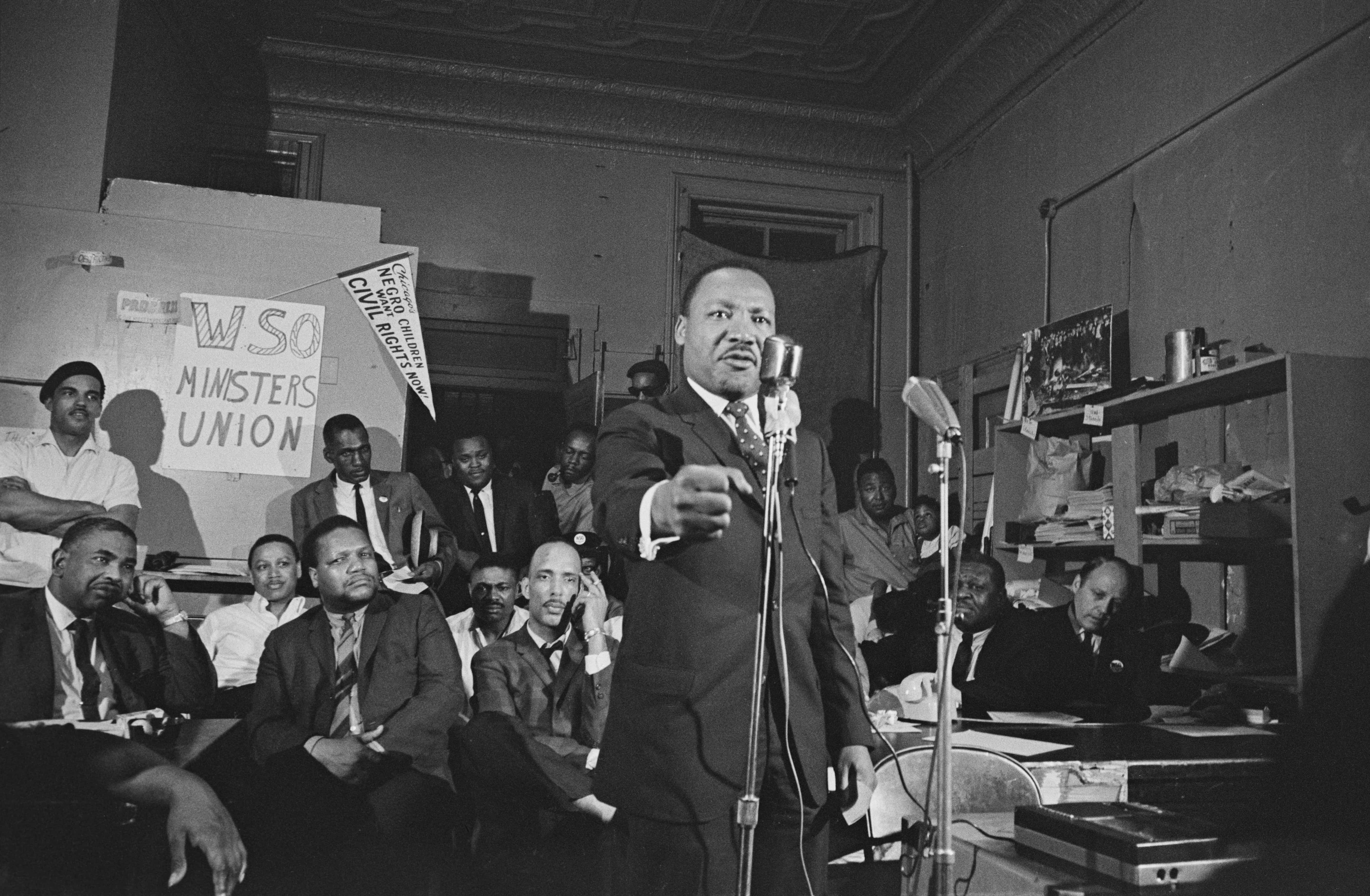 Getty Images
Getty Images
20. She Staged A Cabaret
As Northern Coordinator, Angelou raised funds and awareness for the SCLC. Her connections in the arts community came in handy. One of her most successful efforts was the Cabaret for Freedom, a musical revue she organized with novelist John Oliver Killens. It featured performances by Sidney Poitier, Ruby Dee, and others.
21. Martin Luther King Was Like A Brother To Her
Maya Angelou became close friends with Dr. King. King’s sense of humor and warm voice reminded her of her brother, Bailey. Sitting in Dr. King’s office, Angelou said, made her feel like a little girl again. Even after his passing, Angelou continued to speak on his behalf, defending his legacy and keeping his memory alive.
22. She Moved To Africa
Through her political activities, Angelou met Vusumzi Make, a South African civil rights activist. When Make left America for Egypt in 1961, a smitten Angelou followed him. Some have suggested that Angelou and Make were married shortly before leaving the States, but Angelou has remained characteristically vague on the subject.
23. She Stayed In Africa
Whatever the true nature of Angelou’s relationship with Make, it didn’t last long after the move. Angelou and Make officially broke things off in 1962. But while most women in her position would have returned to the US, Angelou decided to make herself at home in Africa, remaining on the continent for most of the decade.
24. She Was A Journalist In The Middle East
Maya Angelou kept busy by working as an assistant editor for The Arab Observer. The Observer was, at that time, the one of the only English-language newspapers in the Middle East. As an American Christian woman with no journalism experience, Angelou felt underqualified for the gig, but a friend vouched for her and the job was hers.
25. She Relocated Because Of A Car Crash
When her son Clyde moved to Ghana to start university, Angelou joined him for the journey, excited and sad to watch him leave the nest. But then, in one startling instant, everything changed. Clyde’s car was involved in a collision and he was seriously injured. Angelou moved to Ghana permanently to nurse him back to health.
26. She Kept Busy
The move meant Angelou had to leave The Arab Observer. When not tending to her wounded child, Angelou took a job as a university administrator. And as an actor. And a radio deejay, and a magazine columnist. Just as in America, in Ghana, Angelou found herself in the middle of an exciting world of radical politics and art.
27. She Worked With Malcolm X
In Ghana, Angelou was introduced to another American civil rights activist: Malcolm X. The two hit it off, and when Angelou returned to the States, she immediately looked him up. X was working to establish his own civil rights advocacy group, called the Organization of Afro-American Unity. Angelou eagerly volunteered.
28. Tragedy Struck Twice
However, a dark series of tragedies would mark the next period of her life. In 1965, a group of gunmen assassinated Malcolm X at an event. Undeterred, Angelou returned to her roots, once again teaming up with Martin Luther King, Jr. In fact, Angelou was in the process of organizing a march for King when, once again, tragedy struck and Dr. King was assassinated in Memphis.
The event devastated Angelou: she had just asked King’s permission to reschedule the march so she could take some time off to celebrate her birthday with her family. For the rest of her life, Angelou refused to acknowledge her birthday, commemorating the event instead by sending flowers to King’s widow, Coretta Scott King.
29. Her Friends Were Supportive
Demoralized by the loss of Malcolm X and Martin Luther King, Jr., Angelou dived into writing. Luckily, she found supporters. At a dinner party author James Baldwin and Random House editor Harold Loomis challenging her to write her own life story. A friend offered to support her financially while she worked on the book.
30. She Told Her Own Story
Angelou released her first book, a memoir called I Know Why the Caged Bird Sings, in 1969. It tells the story of Angelou’s childhood, including her years as a mute. The tremendous success of I Know Why the Caged Bird Sings spawned a TV movie and a hip-hop album…not to mention Angelou’s own long series of autobiographies.
31. Her Book Is Banned
I Know Why the Caged Bird Sings has never gone out of print. But there has, however, been a dark side to its fame. It’s occasionally been pulled from library shelves by parents and “concerned citizens” who object to Angelou’s frank discussion of race, abuse, and sexuality. The American Library Association lists it as one of American schools’ ten most frequently banned books.
32. She Was A Poet
Maya Angelou followed her hit memoir with her first book of poetry, 1971’s Just Give Me a Cool Drink of Water ’fore I Diiie. Critics noticed that many of the poems followed the familiar patterns of jazz songs. That makes sense: Angelou wrote many of the poems when she was a nightclub singer, and even recorded a few of them.
33. She Had A Process
Angelou kept a particular routine when she was writing. First, she rented a hotel room near her home. She removed all furniture and decorations except the bed and the desk. She arrived promptly at 6 AM each morning with a dictionary and a note pad. A cup of coffee and a bottle of sherry and she was almost ready. Almost…
34. She Put On Her Thinking Cap
Angelou did have one more requirement when she was writing: she liked to wear a hat. If a hat was unavailable, she would use a very tight head tie. In her own words, she hoped that “by doing that [she could] keep my brains from seeping out of my scalp and running in great gray blobs down my neck, into my ears, and over my face.
35. Her Stories Didn’t Always Add Up
In all, Angelou wrote seven memoirs, spanning the years 1928 to 1968. Angelou wrote about her own life so much that she often found herself recounting the same stories. Critics pounced on
this fact, pointing out that many of Angelou’s memoirs contain inconsistencies or unverifiable information. Some considered them fiction.
36. Still, She Rose
In 1978, Angelou released her third collection of poems, And Still I Rise. It remains one of her most popular books and contains many of her best-loved poems. The title poem was Angelou’s personal favorite of all her works. She performed it frequently and allowed the United Negro College Fund to use it in commercials.
37. She Taught At Wake Forest
In 1981, Angelou accepted a lifetime position as a professor of American Studies at Wake Forest University in North Carolina. Although Angelou’s formal education ended at high school, she taught university classes on philosophy, ethics, theater, and even science. Angelou stayed on at Wake Forest until her retirement in 2011.
38. She Was A Doctor
Ms. Angelou? Mrs.? You’d better think again. While Angelou never graduated from any college or university, she was the worthy recipient of over 30 honorary degrees from universities around the world. In acknowledgment of these honors, she preferred to be called Dr. Maya Angelou by all but her closest friends and family.
39. She Made Tupac Cry
On the set of 1993 film Poetic Justice, Angelou noticed the film’s young star berating one of the crew members. Witnesses watched Angelou approach him; within moments, they were shocked. The young man fell into her arms, sobbing. Angelou had no idea who he was, her co-stars were shocked that she could make a gangsta rapper like Tupac Shakur cry.
40. She Was Miss Calypso
Maya Angelou might not have been down with Tupac, but she was no stranger to the music industry. In 1995, a record label cashed in on her fame by re-releasing Miss Calypso, an obscure album she recorded as part of the 1950s calypso craze. Angelou was a pretty big deal in the calypso scene, even starring in a calypso movie!
41. She Was With The Band
Angelou, formerly a professional singer, is an honorary member of the Rock Bottom Remainders, a band made up of bestselling authors, journalists, and magazine writers who occasionally get together to play charity events. Fellow members include novelist Amy Tan, columnist Mitch Albom, and the master of horror, Stephen King.
42. She Read For A President
In 1993, incoming president Bill Clinton invited Maya Angelou to read one of her poems at his inauguration. This was an extremely rare honor: Angelou was only the second poet to take part in a presidential inauguration. Robert Frost was the first when, in 1961, he was invited to speak at John F. Kennedy’s inauguration.
43. She Won Back-to-Back Grammys
Maya Angelou wrote a special poem for the Clinton inauguration, called “On the Pulse of the Morning.” A recording of her performance won the 1994 Grammy Award for Best Spoken Word or Non-Musical Album. Angelou repeated her Grammy victory the next year, this time winning for her follow-up recording, entitled Phenomenal Woman.
44. …Then Came Back For More
It took nearly ten years to complete her Grammy Awards three-peat, but Angelou finally did it in 2003. This time, however, she won the Best Spoken Word or Non-Musical Album Grammy for an audiobook. Angelou performed her own narration for the audiobook version of her sixth autobiography, 2002’s A Song Flung Up To Heaven.
45. She Wanted To Direct
Angelou mastered dance, music, acting, and literature, throughout her life. In 1998, she turned her attention to directing in 1998. Her directorial debut, Down in the Delta, starred Alfre Woodard and Wesley Snipes, and saw limited release in the US. Though the story bears some similarities to Angelou’s own, the script was written by Myron Gable.
 Down in the Delta (1998), Miramax
Down in the Delta (1998), Miramax
46. She Sent A Lot Of Cards
In 2000, Angelou partnered with Hallmark to release her own series of inspiring greeting cards. Critics accused her of “selling out;” even her own publisher had reservations. Angelou remained unmoved. Her goal, she explained, was to reach as many people as possible—even those who wouldn’t usually read one of her books.
47. She Won The Medal
Angelou threw her support behind Hillary Clinton in 2008, but endorsed Barack Obama for president when he defeated Clinton in the Democratic Primaries. President Obama thanked Angelou for her support in 2011, when he awarded her the Presidential Medal of Freedom, the highest honor the United States can bestow on a civilian.
48. She Rode The Bus
40 years after the release of her first book, Angelou was still publishing regularly, and still packing them in at readings around the country. She didn’t like to fly, and so toured the country in her private tour bus, decorated with kente cloth. On those occasions when her bus was in the shop, she’d borrow one from Prince.
49. She Loved Her Mom
Angelou published her final book, a memoir, in 2013. Mom & Me & Mom, released just before Mothers’ Day, deals with Angelou’s relationship with her mother, Vivian Baxter. Generally, fans loved the book—though critics again noticed some contradictions in her stories—and debuted at #8 on the Times bestsellers list.
50. She Went Out On Top
On May 28, 2014, Angelou passed on at the age of 86. A memorial for Angelou featured eulogies from Michelle Obama, Bill Clinton, and Oprah Winfrey. With the public eager to hear Angelou’s voice one last time, her first book, I Know Why the Caged Bird Sings, surged to #1 on the Amazon bestsellers list.
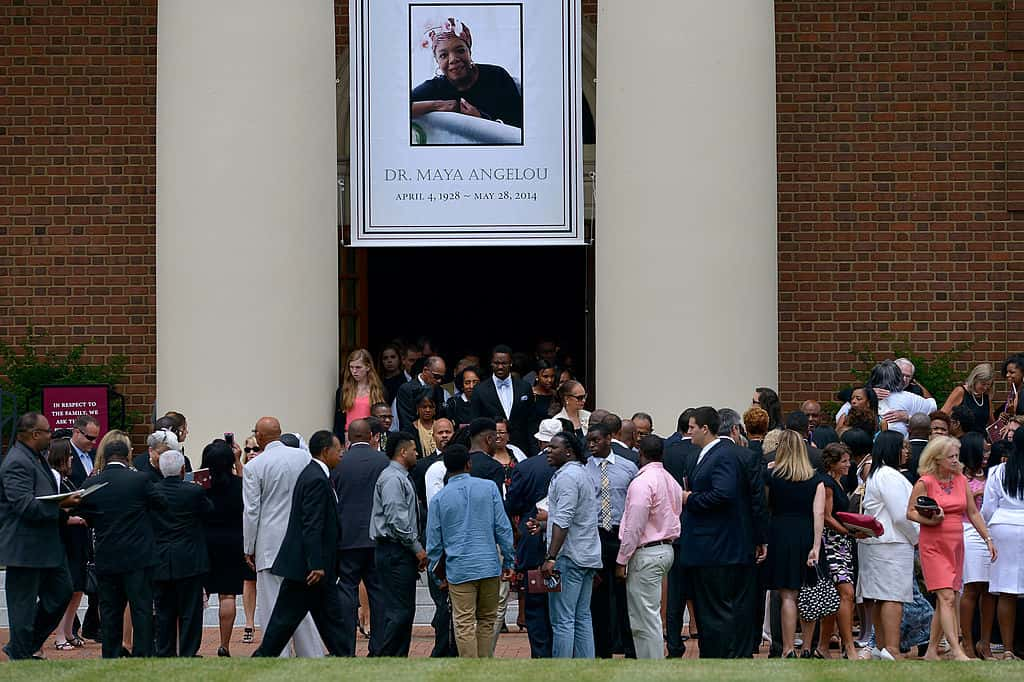 Getty Images WINSTON SALEM, NC - JUNE 07: Mourners leave Wait Chapel at the conclusion of the Maya Angelou Memorial Service at Wake Forest University on June 7, 2014 in Winston Salem, North Carolina. (Photo by Grant Halverson/Getty Images)
Getty Images WINSTON SALEM, NC - JUNE 07: Mourners leave Wait Chapel at the conclusion of the Maya Angelou Memorial Service at Wake Forest University on June 7, 2014 in Winston Salem, North Carolina. (Photo by Grant Halverson/Getty Images)
Sources: 1, 2, 3, 4, 5, 6, 7, 8, 9, 10, 11, 12, 13, 14, 15, 16, 17, 18, 19, 20

